Last updated on August 29, 2023
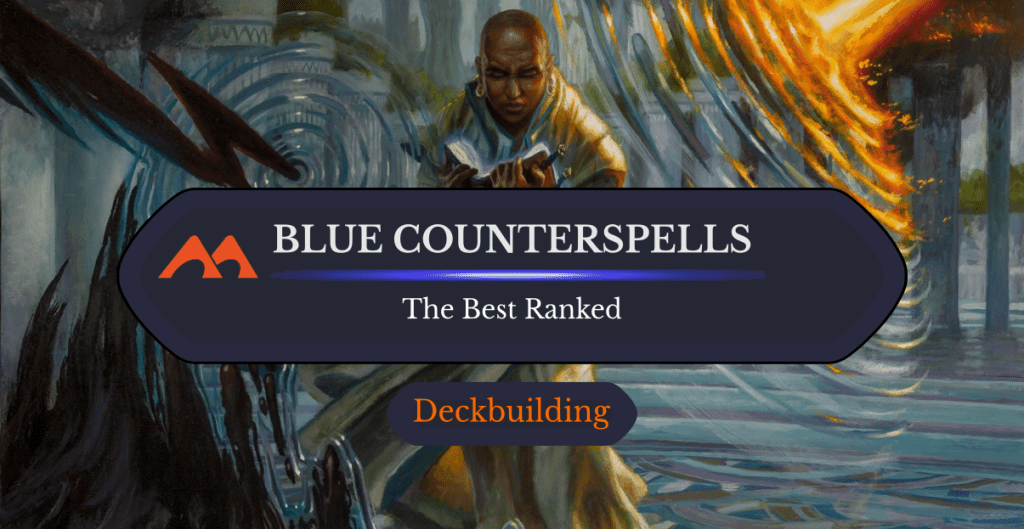
Force of Will | Illustration by Donato Giancola
Blue has long held the status of Magic’s best color. While several factors account for this, perhaps the most notable is that it contains the best countermagic and card draw. One of the best game actions you can take in Magic is simply drawing cards, ensuring you have more resources than your opponents.
As for countermagic, saying no is another incredible move to make. Denying your opponent any value from the spell they cast and negating the mana invested – and often the entire turn used to spend that mana – gives you an incredible edge.
But of all the counterspells at blue’s disposal, which are the best? And what makes the best counterspells? Let’s find out!
What Are Blue Counterspells in MTG?
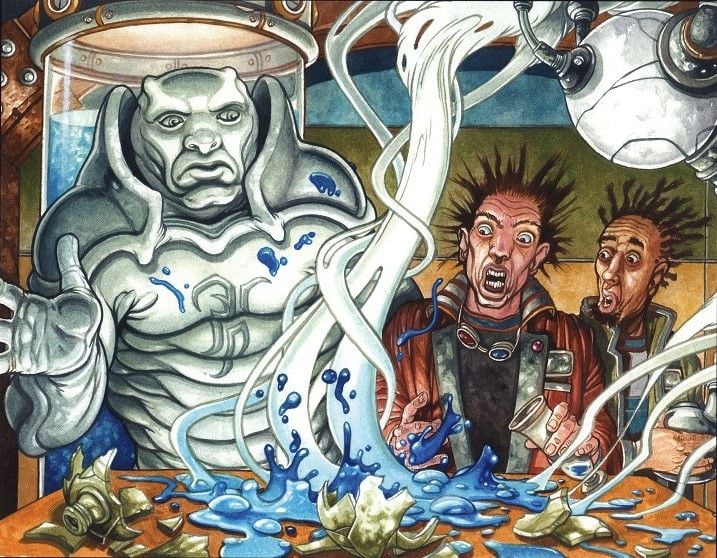
Miscalculation | Illustration by Jeff Laubenstein
Blue counterspells are instants that counter a spell or send it straight from the stack to the graveyard with no other effects. They’re some of the strongest effects in the game because you get to deny your opponent their card, preventing it from affecting the game.
When looking at the best blue counterspells, we’re looking at a few criteria, with efficiency being one of the most important. You generally want your countermagic to be as cheap as possible. This gives you mana-positive exchanges and makes it easier to sequence plays. It’s much easier to play Ragavan, Nimble Pilferer and hold up Counterspell than it is to hold up Disallow or Rewind. Once your countermagic starts costing more than 3 mana, it needs to do more than counter a spell, as seen with Cryptic Command.
The type of counterspell also matters a lot. Counterspells can get sorted into three broad categories: hard counters, situational counters, and soft counters. Hard counters are spells that counter a spell without fuss, like Counterspell. Situational counters are often hard counters that make the countered spell meet some stipulation. Disdainful Stroke or Essence Scatter are excellent examples, as they only counter spells of a specific mana cost or type. Soft counters are counters that usually counter a spell but give your opponent an out, often by paying extra mana like with Spell Pierce and Daze.
All three are playable in the right context, though hard counters tend to be the strongest. Situational counters often make great sideboard options, letting you sculpt your counter suite to answer your opponent. Soft counters also see plenty of play; while they can fall off later in the game, it’s easy to hold them up early for an excellent mana exchange when you Daze their 3-drop.
In Commander, soft counters tend to be a bit weaker. The format encourages lots of ramp pieces in a way that can make Spell Pierce and friends fall off much sooner. Cheaper hard counters feel much better in the format with so many big spells flying around. Since there’s such an emphasis on ramp and the games tend to be slower, at least in casual tables, there’s also more room to play more expensive counterspells that other formats might not play, like Desertion and Spell Swindle.
#35. Exclude
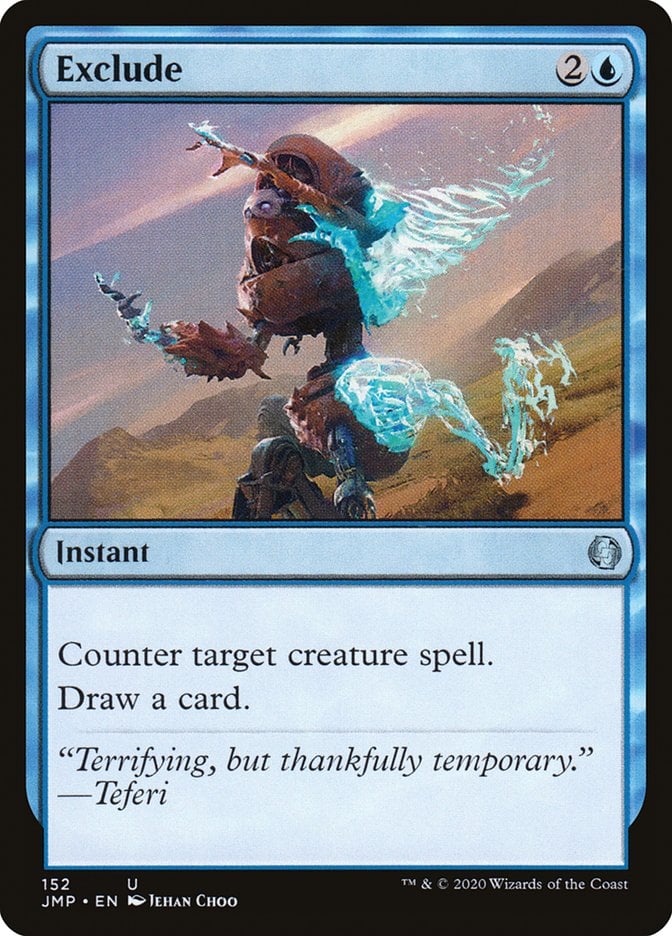
Counterspells are already powerful as a one-for-one trade. Exclude is a fantastic two-for-one. Countering their creature and drawing a card puts you ahead in tempo and card advantage. Three mana is a lot to hold up every turn, but Exclude is well worth the price.
#34. Muddle the Mixture
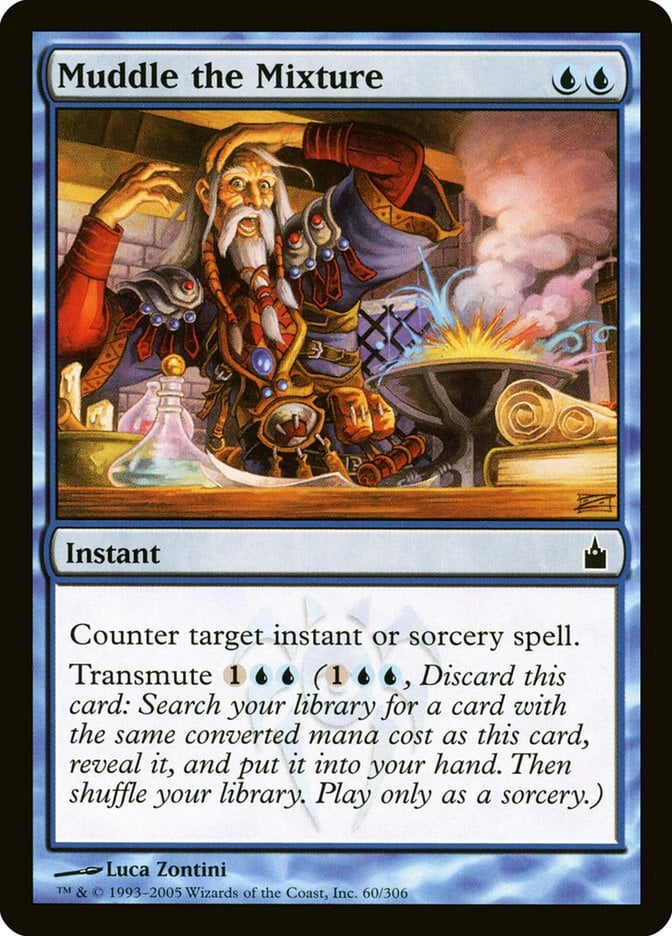
Options are always powerful. Muddle the Mixture is narrow as both a counterspell and a tutor, but having both effects available in one card is powerful. This card does a great job winning counter wars or stopping board wipes and the like from resolving and can tutor for combo pieces like Dockside Extortionist, Thassa's Oracle, Underworld Breach, or Animate Dead.
#33. Unified Will
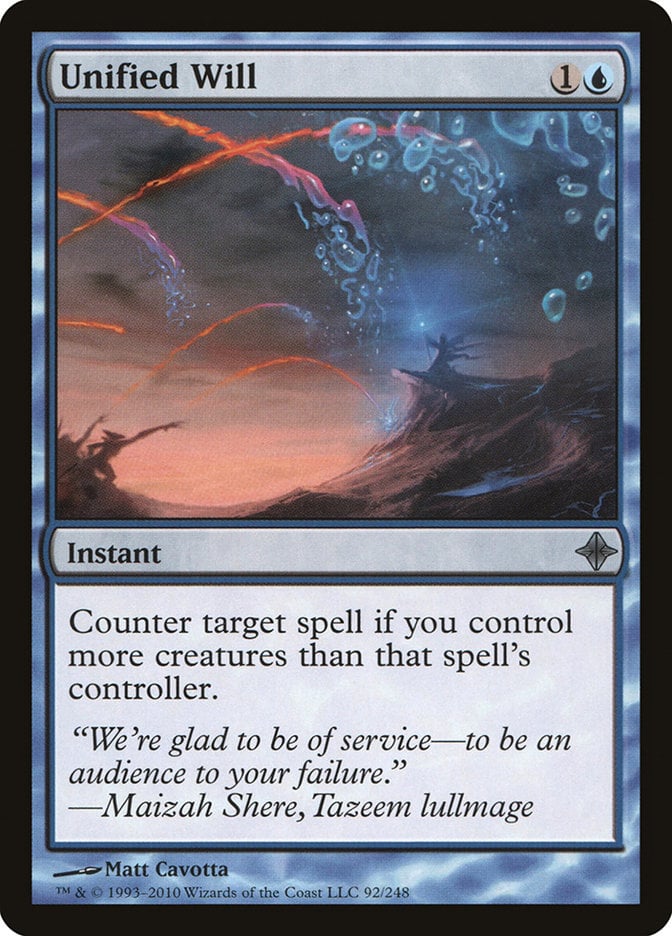
Creatures and counterspells don’t work well together; if you tap out to play a creature on your turn, you can’t hold up countermagic; likewise, holding up countermagic stops you from playing creatures on your turn. If you can get the two to work, Unified Will offers a hard counter that’s pretty color-light. It could be an interesting tool for a flash deck utilizing threats like Brineborn Cutthroat and Nightpack Ambusher or could work with various instants that make tokens like March of the Multitudes, Raise the Alarm, and Secure the Wastes.
#32. Miscalculation
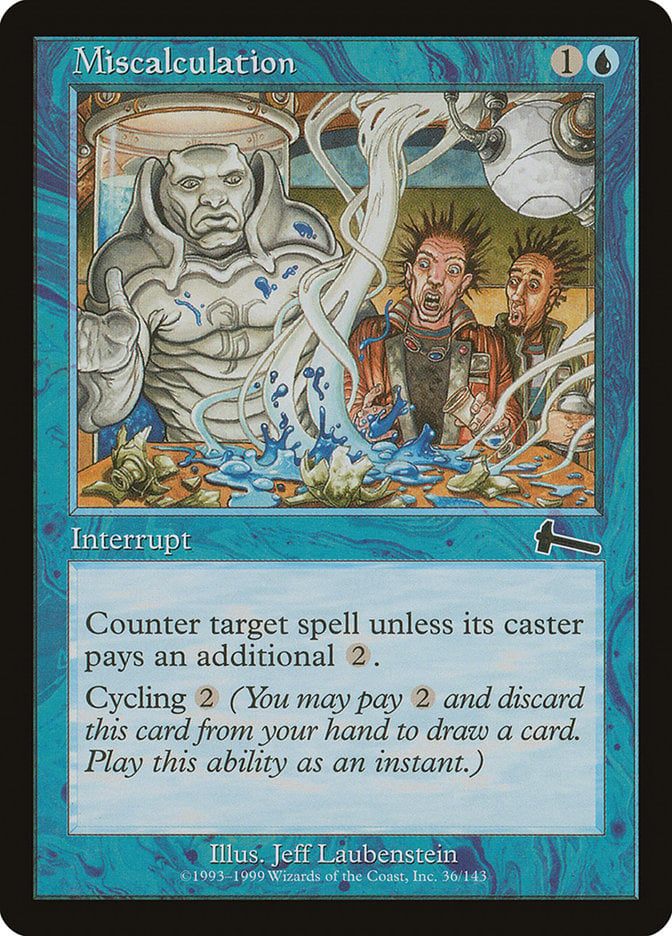
Two mana tends to be a weak spot for soft counters. You’ll delay your opponents by a few turns if they play suspect and work around the Miscalculation, but it’s still pretty feasible to play around it or bait it out with a less important play. That said, the addition of cycling makes this a Cube staple and an overall solid piece of countermagic, even if it drops off earlier than you’d like.
#31. Abjure
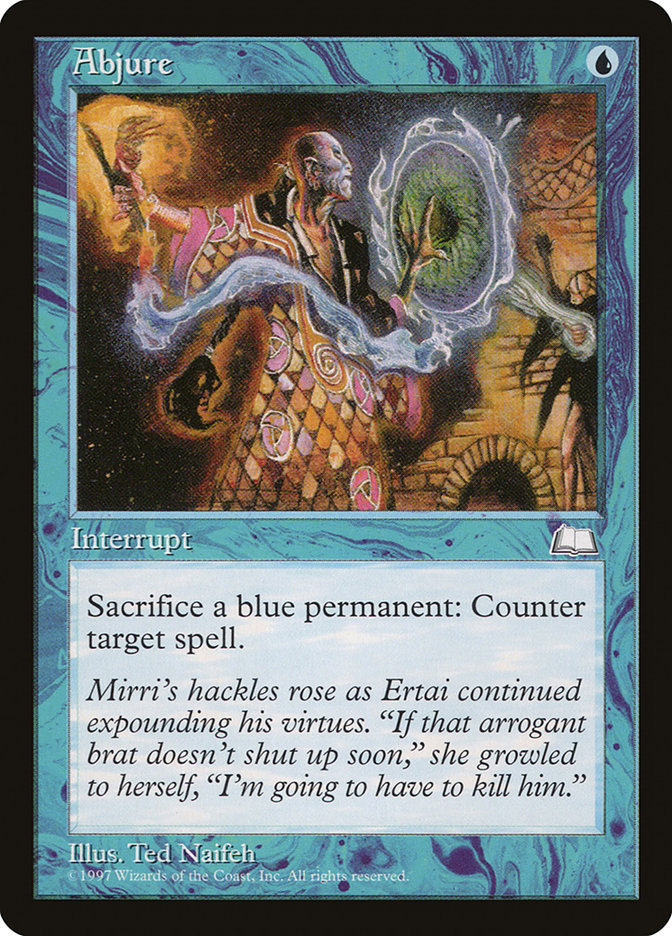
Abjure is a unique counterspell that takes a little work to maximize. It’s a situational spell, but more so in that it needs a specific deck than for your opponent to play a specific card. If you’re running a deck with blue permanents to spare, this becomes a powerful card that swings games. Maybe you’re using something like Painter's Servant to make your lands blue or maybe you’re not paying for Mystic Remora next turn anyway. You can even recur the card with Muldrotha, the Gravetide.
#30. Spell Swindle
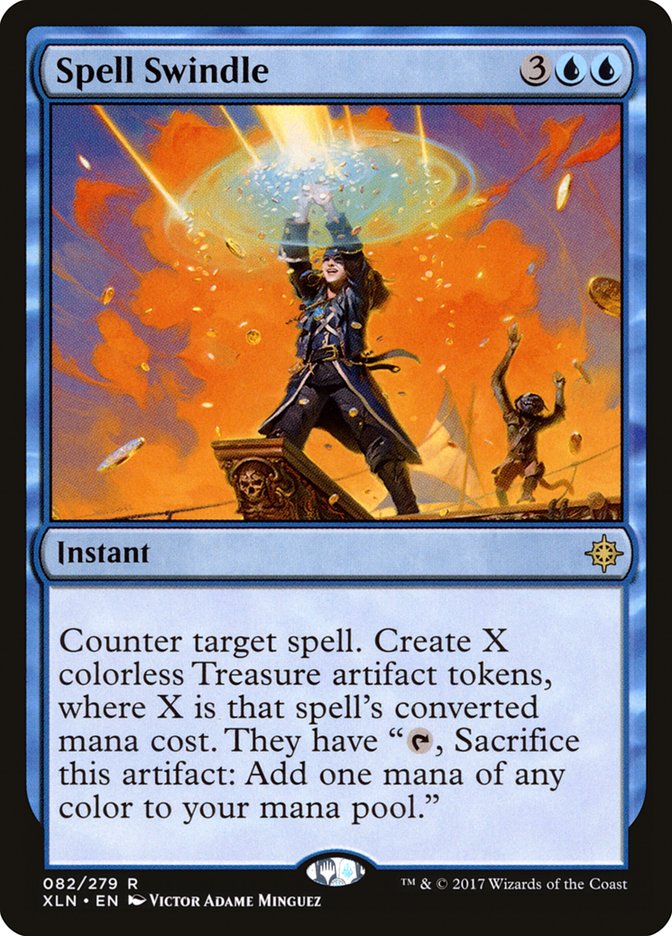
When you’re playing an expensive counter spell, it needs to do much more than deny your opponent a resource. Spell Swindle quite literally pays you back. This card often functions like a 2- or three-3 counterspell once it resolves and recoups some of its cost with Treasure tokens but can be mana-positive and saves mana for future turns. This card is at its best in artifact decks that can abuse by making a bunch of Treasures for more than mana.
#29. Desertion
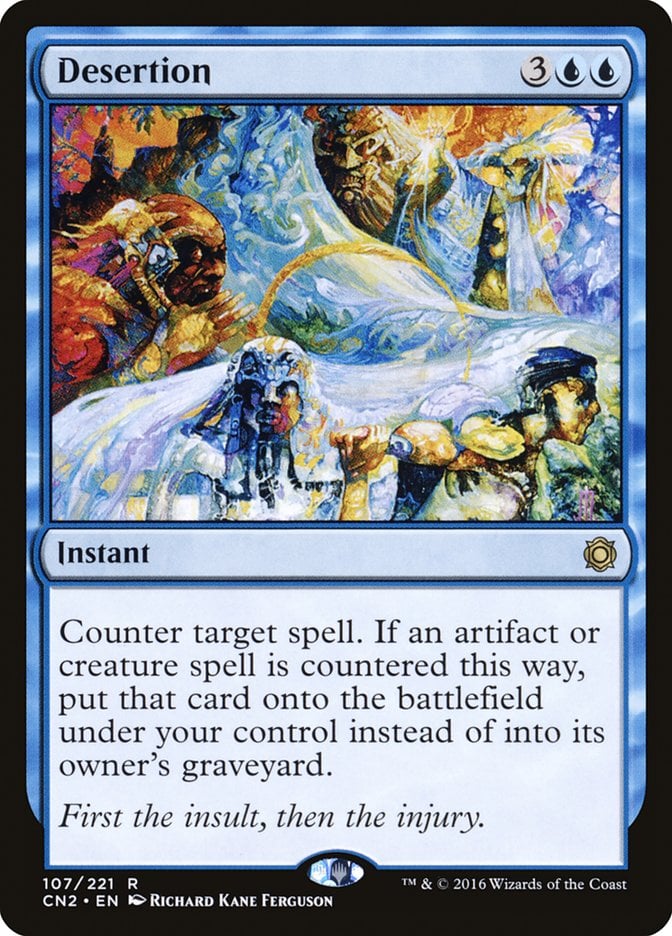
Desertion is a big counterspell with game-winning potential. It’s super juicy in EDH as a way to steal your opponent’s commander or just their payoff cards, like Portal to Phyrexia or Bolas's Citadel. It’s pretty expensive, and you don’t want to use it to counter something other than a creature or artifact, but having the option to hit something else tends to be pretty good.
#28. Mindbreak Trap
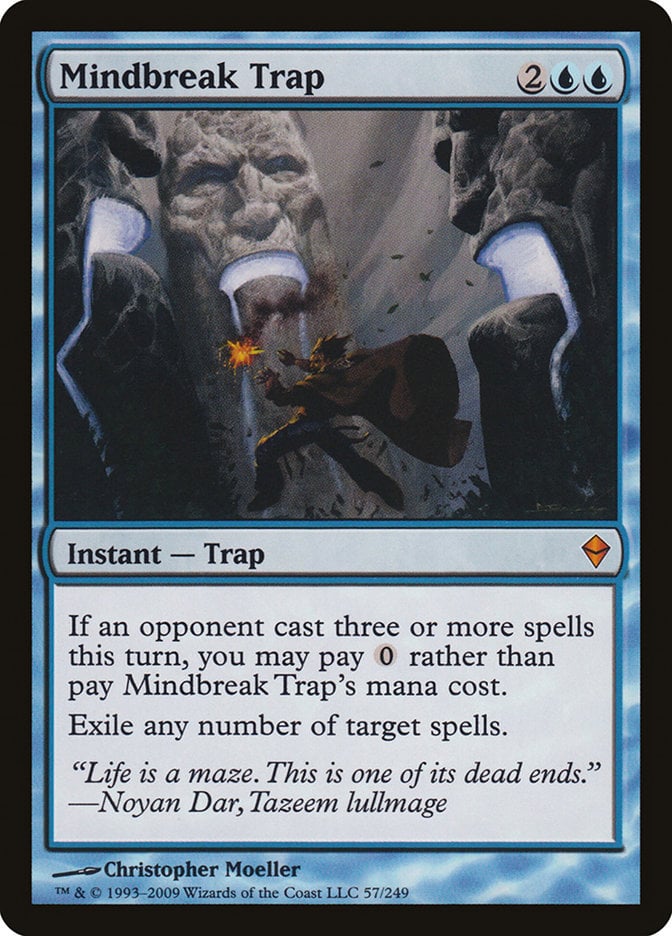
Mindbreak Trap is a narrow but powerful counterspell. You see it a lot in cEDH and it can be a strong sideboard card. It’s most effective against Storm-style decks seeking to win in a single turn by casting lots of spells. It’s also a little stronger than it looks because it exiles spells right from the stack instead of countering them. Exiling spells lets you get around uncounterable since you aren’t countering the spell and prevents your opponents from recuring important combo pieces later.
#27. Stern Scolding
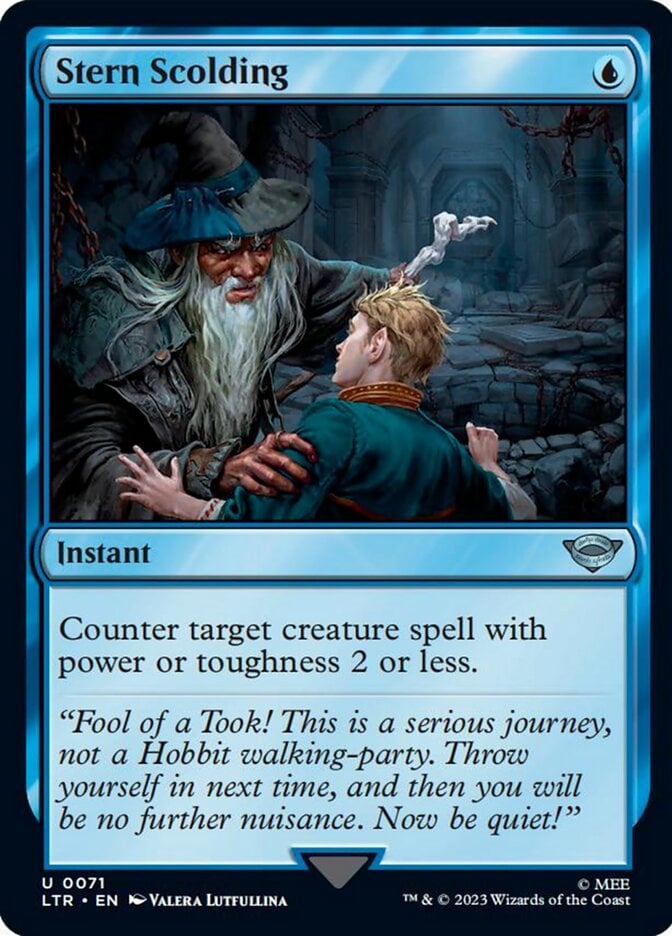
Stern Scolding is an interesting counterspell. It’s just come out but feels like it has lots of potential in formats like Modern and Legacy. It counters spells like Ragavan, Grief, Solitude, Delver of Secrets, and Dragon's Rage Channeler, among other format staples. That said, it’s likely to be a dead draw in quite a few matchups, so this probably has potential as a decent sideboard card, if nothing else.
#26. Forbid
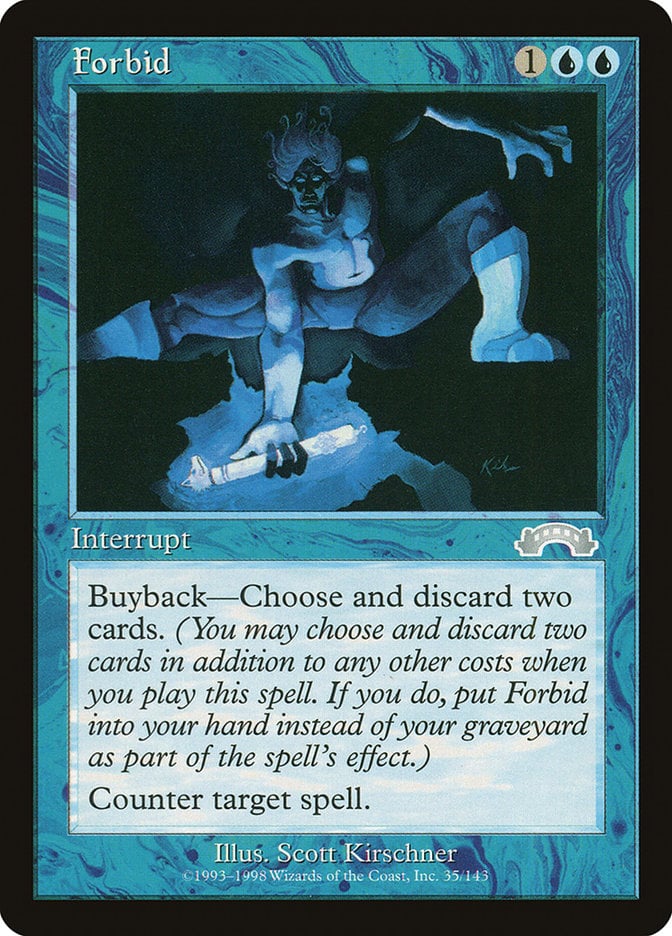
Forbid gives you a quirky counterspell that you can cast again and again with buyback. One way to make this card work is with Life from the Loam, which you can dredge and cast to keep casting Forbid. It’s also a compelling pairing with cards like Ramunap Excavator or Crucible of Worlds that let you play the lands you’re discarding. It takes some work for this to be good, but always having a counterspell in hand is a decent payoff.
#25. Memory Lapse
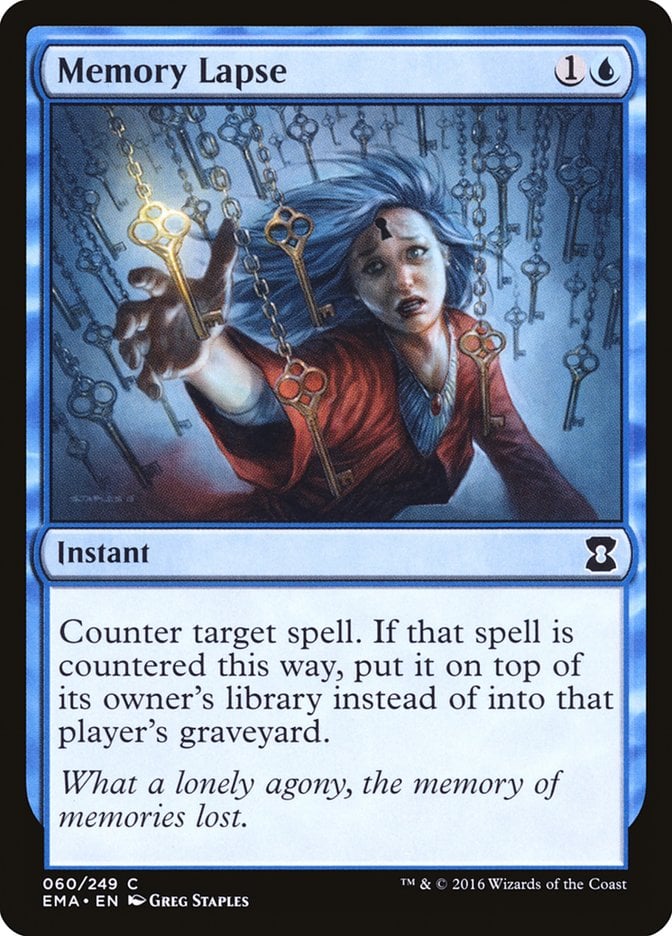
Hello, Time Walk! Memory Lapse is a soft counter since it doesn’t deal with the threat, but sending a spell to the top of your opponent’s library can be a great tempo play. They don’t get their spell this turn, forcing them to reinvest mana, and they can’t draw anything better than what you hit with this spell. That said, this isn’t a hard and fast answer, and sometimes buying a turn isn’t enough since you’ll have to deal with their threat next turn.
#24. Miscast
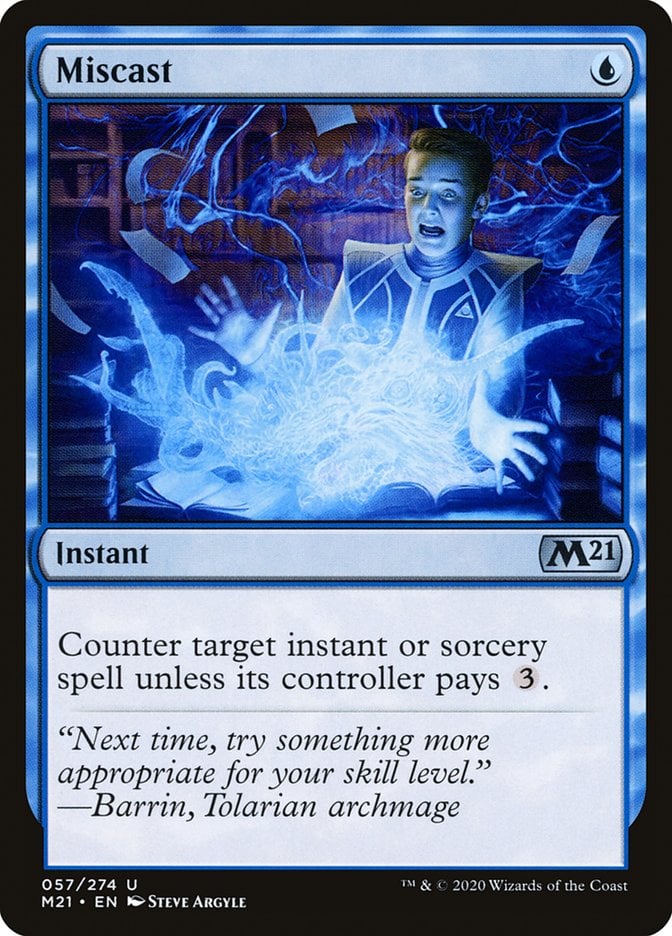
Miscast can be an effective sideboard piece, though I’d hesitate to run it main deck. It’s not great against anything creature-based or some artifact- and enchantment-based lists. That said, it’s a great way to win a counter-war or prevent your opponent from removing one of your creatures.
#23. Spell Snare
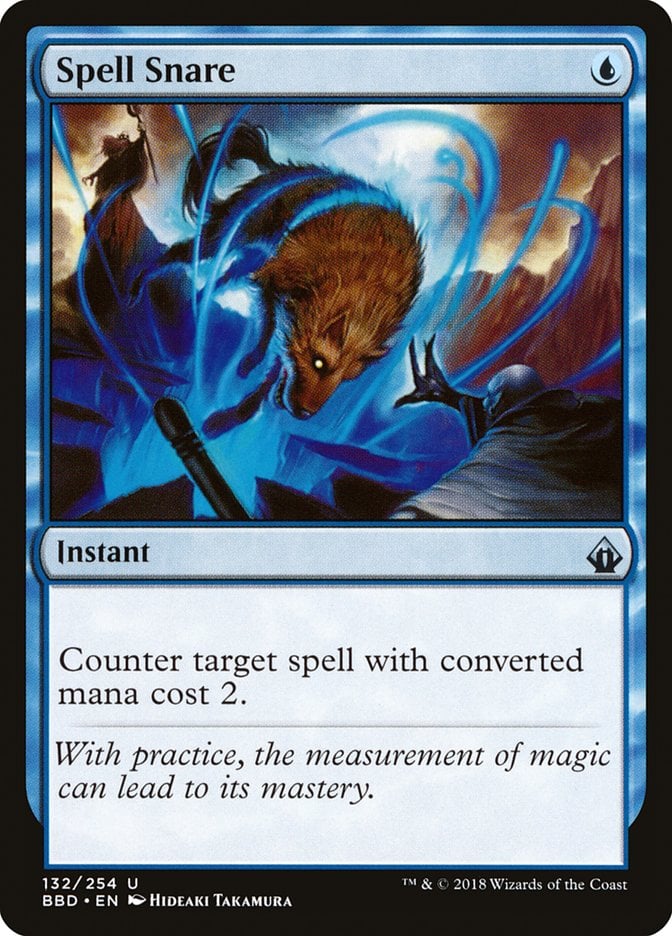
Spell Snare is a feast or famine kind of counterspell. There are some metas where it doesn’t absolutely nothing, but there have been periods in Modern’s history when it was fantastic. It always trades up in mana and is an easy card to hold up, assuming the meta has enough 2-mana plays that it’s not a dead card.
#22. Hydroblast + Blue Elemental Blast
A Pauper staple, Hydroblast and Blue Elemental Blast are truly unique effects as a counterspell that also destroys permanents. This effect is a color pie break, making them very versatile, but it also lessens the inherit weakness of counterspells, which is their inability to deal with resolved threats.
#21. Remand
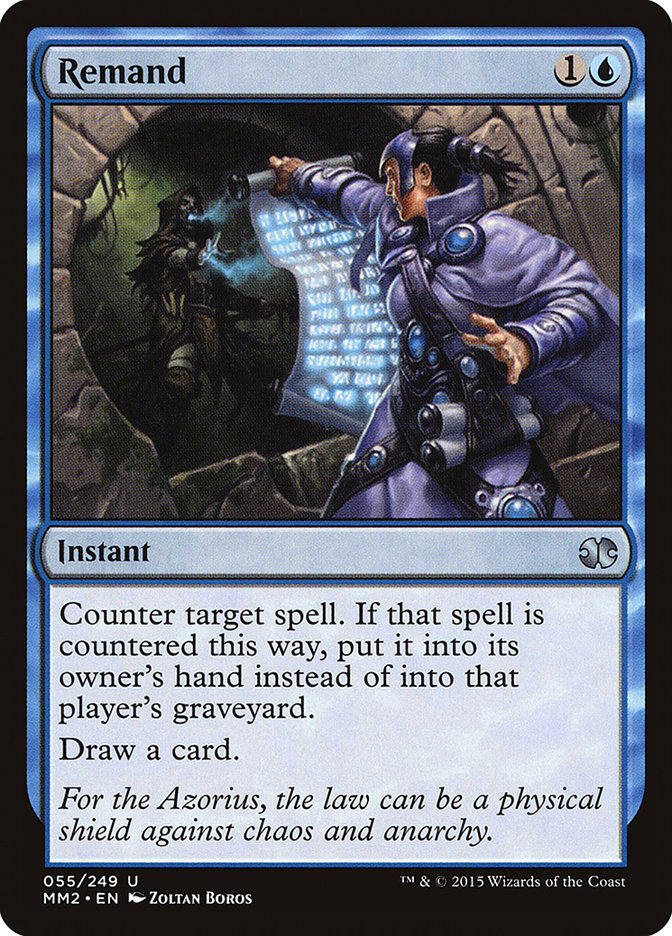
Remand is an excellent tempo play. It doesn’t deal with a threat, as it goes back to the opponent’s hand, but it does replace itself and can severely disrupt your opponent. Imagine Remanding their 2-drop; in this exchange, you both go even on cards. Remand replaces itself, and their card returns to their hand, and the mana exchange is even. But it puts your opponent in a tight spot next turn: do they replay the 2-drop and have a mana-efficient turn or hold the 2-drop until they can sequence it with another spell? Either way, this has thrown a wrench into their plans.
#20. Mystic Confluence
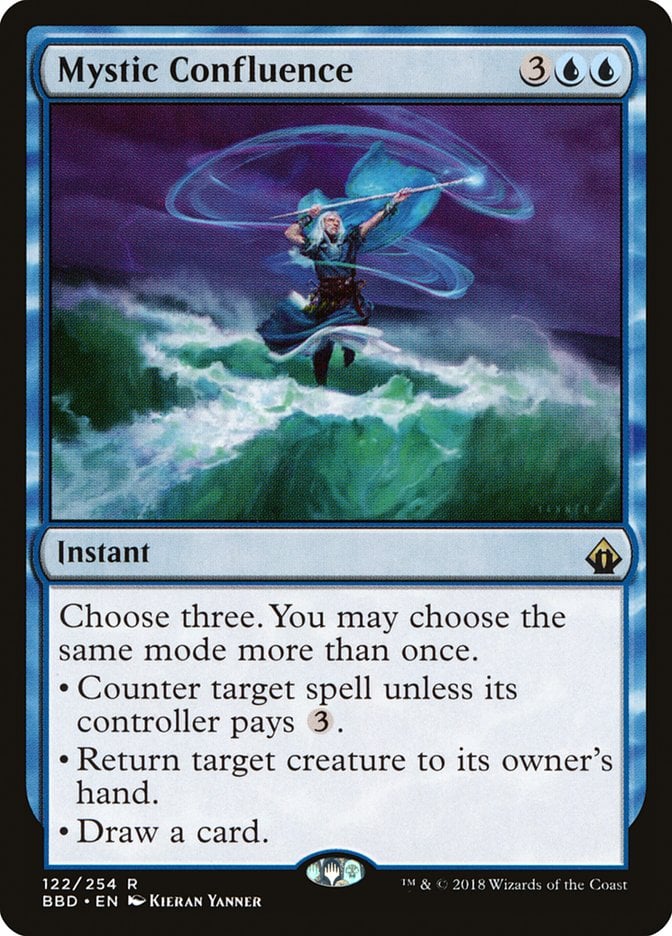
One of the strongest big counterspells, a common play pattern of Mystic Confluence is to counter a spell and draw two cards for insane card advantage. But it also has so much more to offer. Getting to affect the board as a counterspell makes this an incredible play. It can save you by bouncing three creatures before they attack, or it wins the game by bouncing three blockers before you turn, or some combination thereof. Unless you hit the rare corner case of your opponent casting a spell you need to target with multiple counter modes to deal with, you’ll always get a solid three-for-one out of Mystic Confluence.
#19. Malevolent Hermit // Benevolent Geist
Malevolent Hermit gives us a few interesting abilities. Getting to sacrifice a creature to counter a spell is a pretty good deal, especially for only 1 mana on activation and 2 mana total. Playing with a counter face up, as it were, can make your opponents contort their play patterns around your threat of activation. At the very least, they’ll need to kill this before going for their good spell, which gives you access to Benevolent Geist to blank their countermagic. It’s also a cheap enough creature you could activate this and look to recur the Hermit for more counters.
#18. Archmage’s Charm
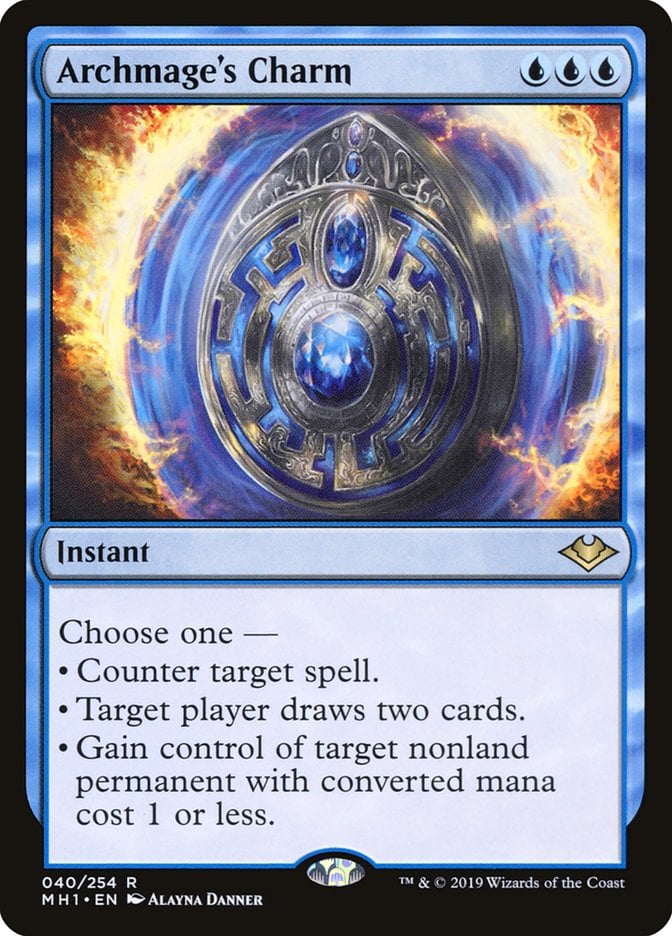
is about as color intensive as a mana cost can get, but Archmage's Charm pays you off with an incredible modal spell. The flexibility of being Counterspell or an instant speed Divination would be plenty, but the Mind Control pushes this over the top. It’s a great way to steal high-impact cards like Ragavan, Nimble Pilferer, Sol Ring, or random tokens. If your deck can manage , you should consider playing a copy or two of this charming instant.
#17. Sublime Epiphany
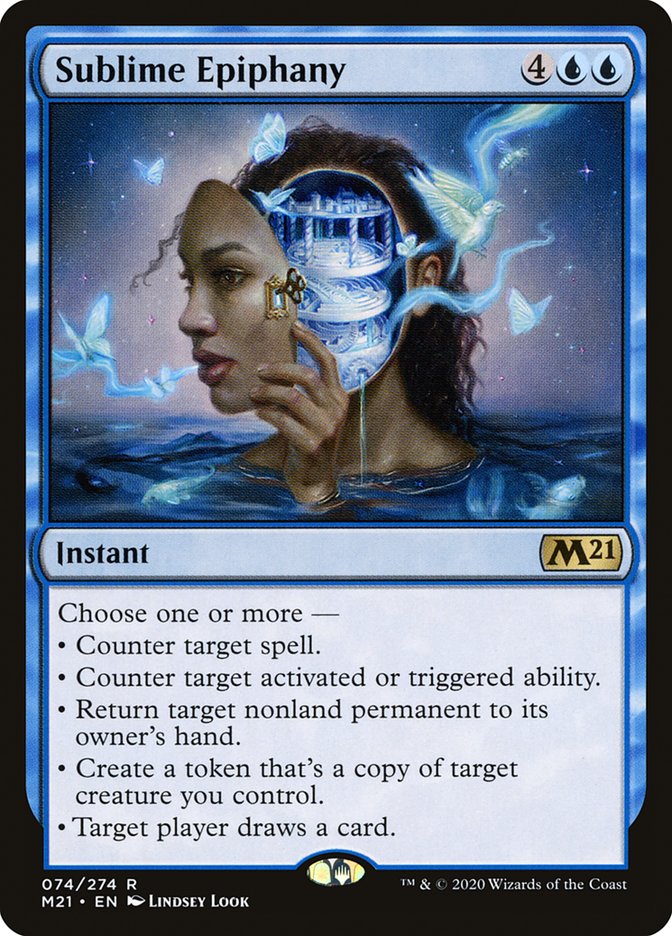
Getting every mode of Sublime Epiphany is a dream many control mages share. At worst, this is usually a three-for-one, countering a spell, drawing a card, and bouncing a troublesome permanent that’s shown up by the time you have 6 mana. Getting to make a token copy of one of your creatures is secretly this card’s best mode and blue has a few good creatures to copy, like Hullbreaker Horror or Torrential Gearhulk, or something like Archaeomancer to recur the Epiphany with its ETB so you can cast this powerful card again and again.
#16. Disdainful Stroke
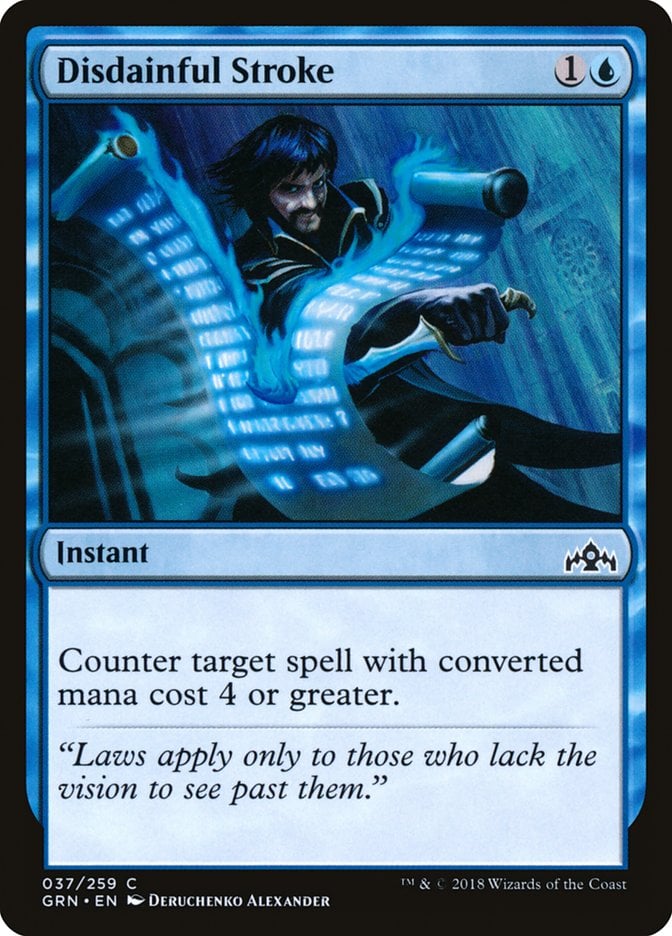
Disdainful Stroke is a solid situational counter. It often thrives in the sideboard of formats like Standard and Pioneer. It’s a great way for blue midrange or control decks to get a great tempo advantage. It does fall off in older formats, like Legacy and Modern, where the average mana value of cards is much lower.
#15. Mana Leak
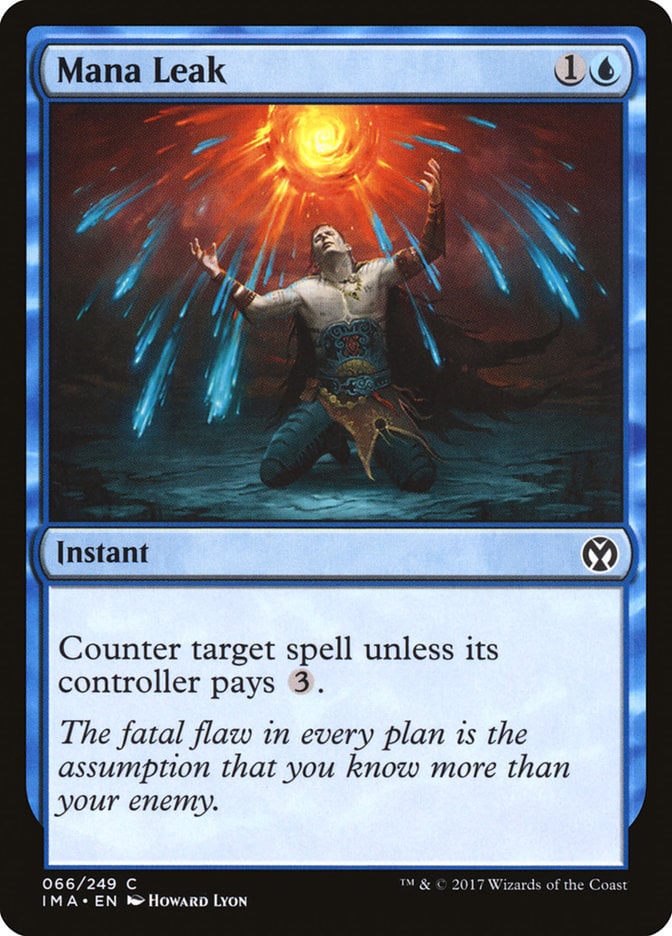
Sometimes, one number is all it takes to take a Magic card from eh to amazing. Quench is pretty much unplayable, but Mana Leak has proven to be an incredibly powerful counterspell, even if it got pushed out of Modern with the inclusion of Counterspell. Three mana is such a large tax that you can’t play around it: waiting for three turns to deploy your spell isn’t worth the tempo hit.
#14. Spell Pierce
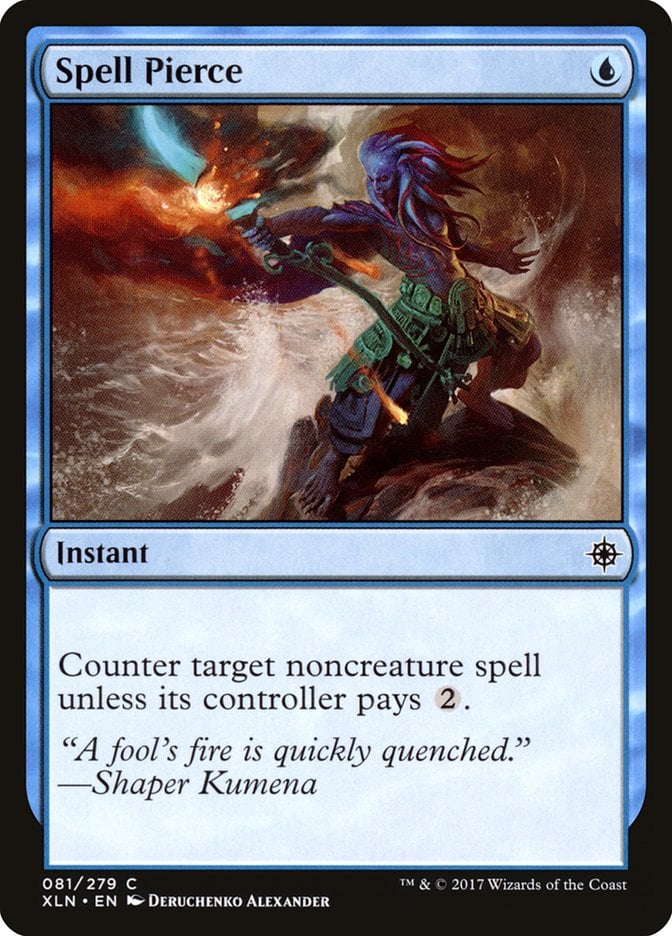
Spell Pierce makes up for only taxing the opponent by 2 by being incredibly efficient. This spell never goes worse than mana-neutral, and it often trades up in mana. Two mana is enough to play around it occasionally, but a lot of the time, your opponent has to hope you don’t have it. This sees play in multiple formats, often as a sideboard card, but you can get your opponent with the unexpected mainboard Pierce in some metas.
#13. Swan Song
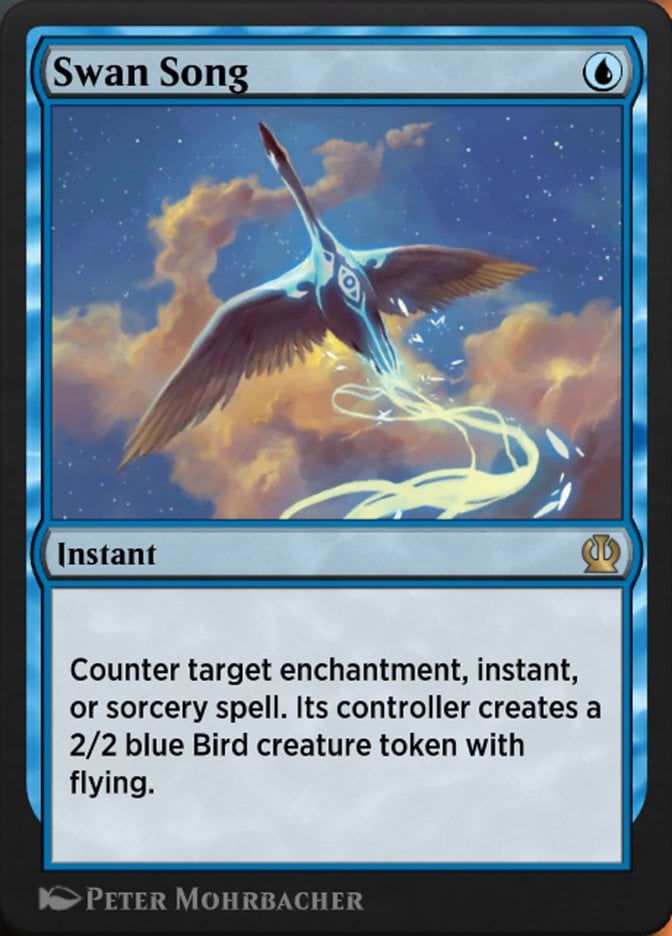
Giving your opponent a 2/2 Bird token isn’t as bad as it may seem. Swan Song is another counterspell that always trades up. It’s a little narrow and benefits your opponent, but the bird isn’t always relevant, especially in Commander with such high life totals. It’s often worth giving your opponent a Bird to ensure your spell resolves or their winning piece doesn’t.
#12. Dispel
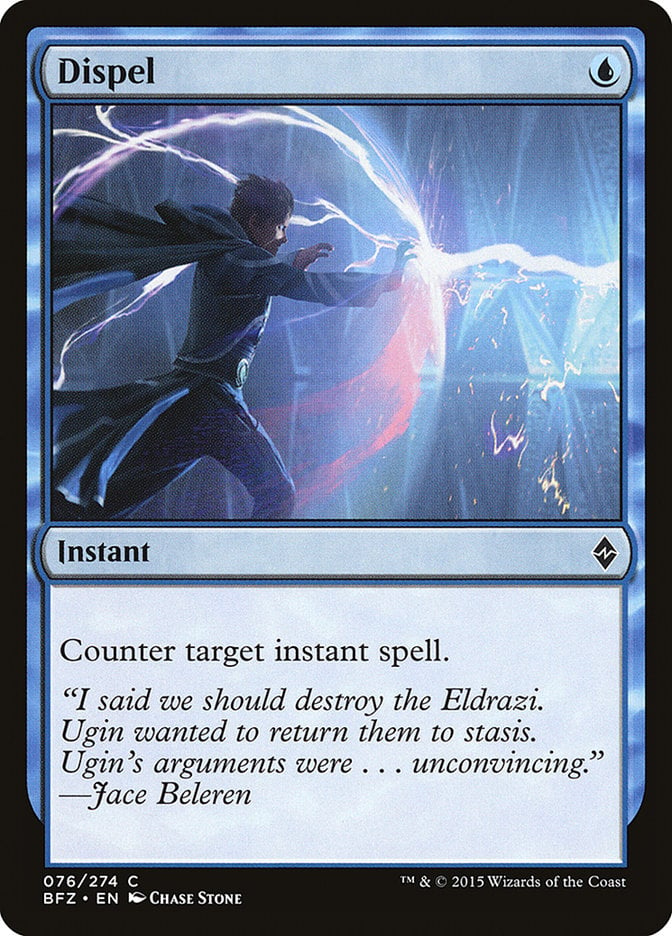
Dispel is a simple counterspell with a simple goal. This effect is at its best when you think you’ll play against other blue decks and probably does its best work in the sideboard. While winning counter wars for a single mana is what this is known for, it also offers protection from lots of efficient removal spells and can even shut down lots of tutors like Chord of Calling or Vampiric Tutor.
#11. Cryptic Command
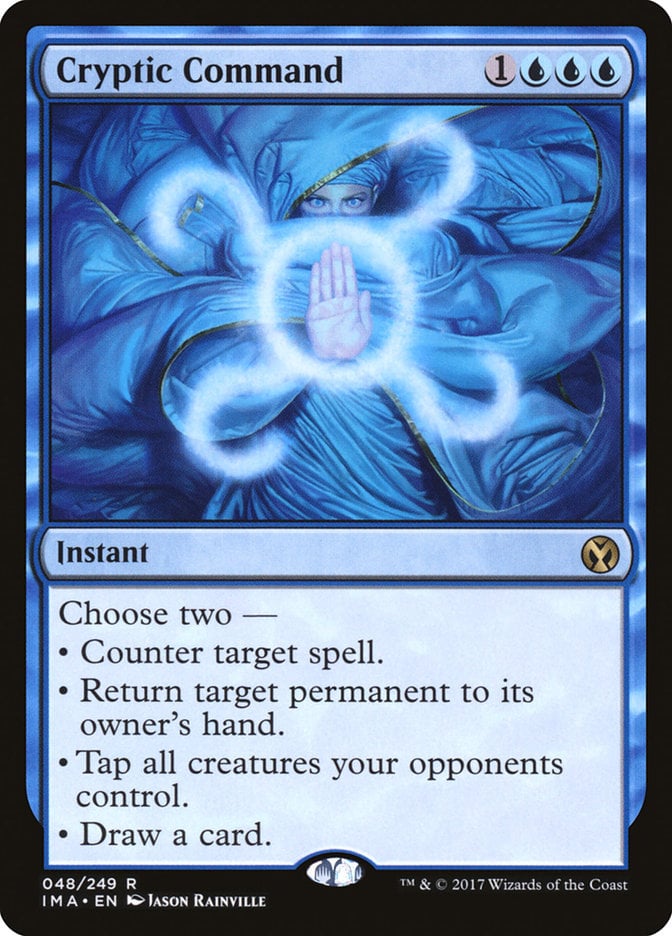
Cryptic Command’s time in Modern seems to have passed, but it’s still an incredible piece of countermagic. It’s hard to lose most turns you’re holding up this card. Its power comes from its incredible flexibility. While the most common modes chosen are counter a spell and draw a card, that’s an incredible two-for-one. You can also tap your opponent out to fog them for a turn or return a permanent to your opponent’s hand or save your threat. This card is never dead, and its only weakness is the in its mana cost.
#10. Mystical Dispute
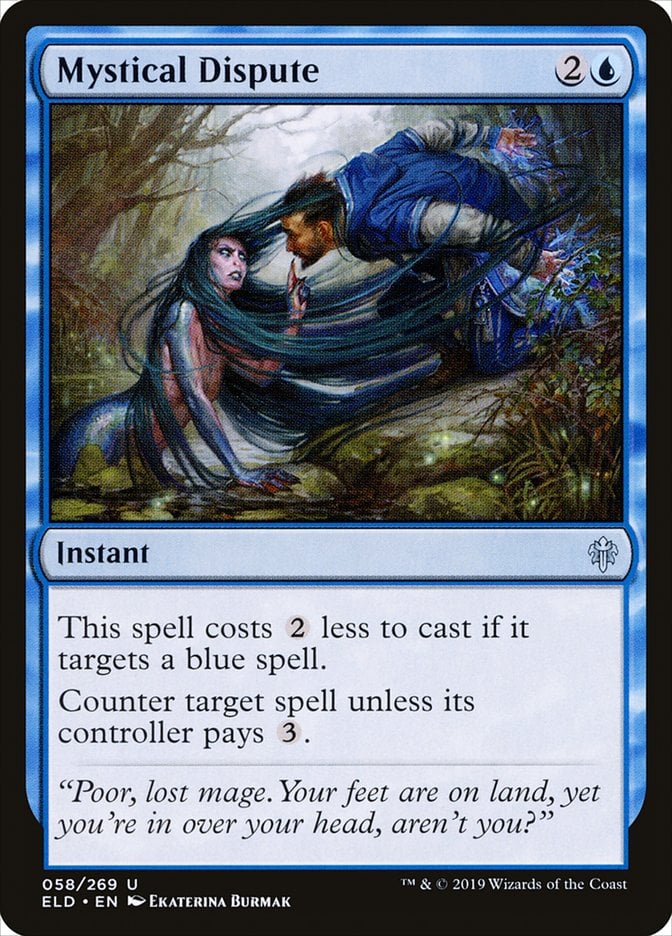
Mystical Dispute is the epitome of a situational sideboard counterspell, but it’s one of the best. Since its printing in Throne of Eldraine, this card has seen plenty of sideboard play during its Standard run and still today in Modern and Pioneer. In applicable matchups, this is a strictly better Mana Leak, making it easy to win counterwars or delay your opponents trying to set up some powerful play.
#9. Daze
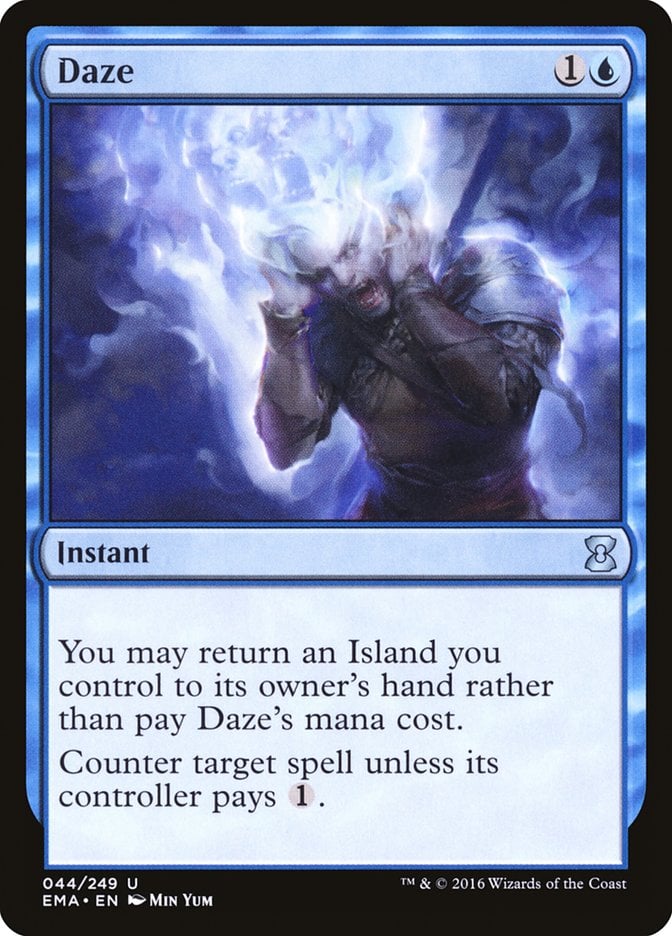
Force Spike can be a weak card, but Daze makes up for it by being free! You take a tempo hit by bouncing an Island to your hand, but Legacy Delver decks have been making that trade for years. The power you get from tapping out to play a threat and still holding up interaction is hard to match. You’ll want to be an aggressive, tempo-oriented deck to maximize Daze's value.
#8. Fierce Guardianship
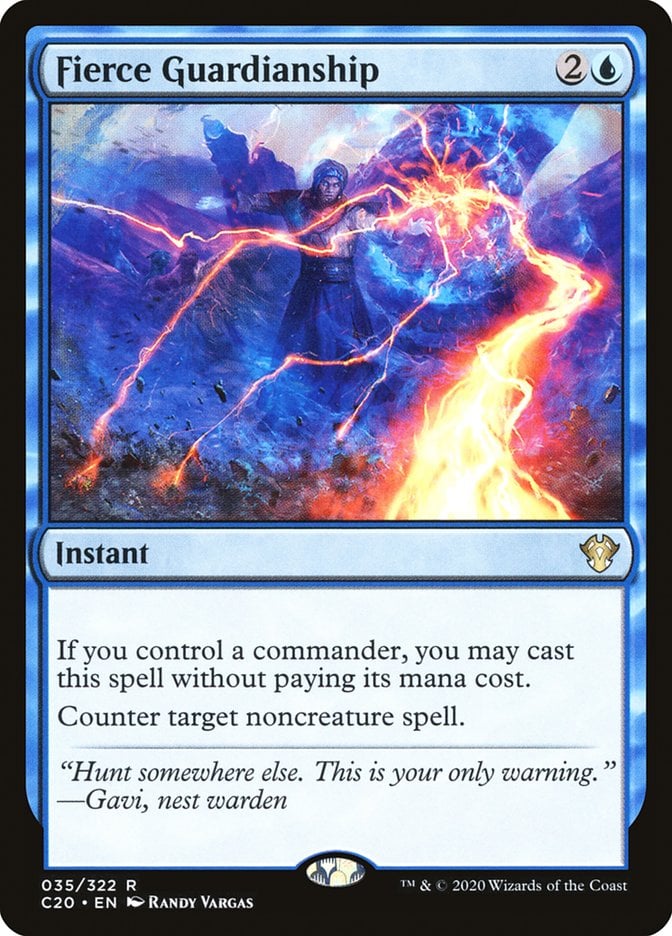
One of the best counterspells in Commander, Fierce Guardianship is another free spell (if you've got your commander). It’s only good in Commander; in other formats, it’s just an expensive Negate. It’s a cEDH staple for a reason, though. Getting to protect your commander the turn they come down is great, especially if you’re playing an expensive legend you need to tap out for. It can also do much more by stopping your opponents from winning the game.
#7. Force of Negation
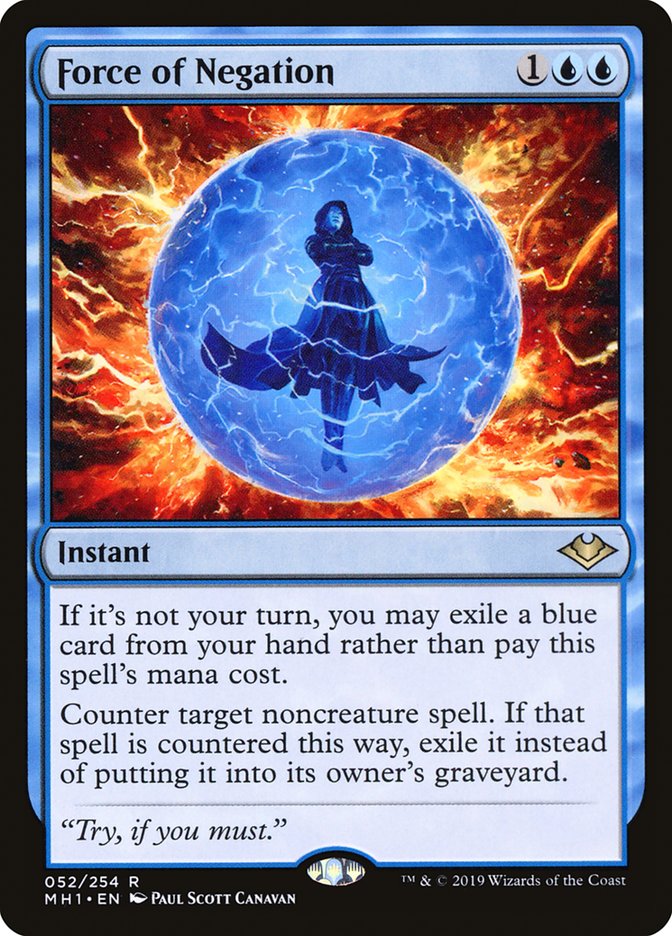
Force of Negation is a spin on Force of Will, designed to be friendlier to Modern than its predecessor. This friendliness comes from a few restrictions for when it can be free and what it counters, but a spell that’s only free on your opponent’s turn is still pretty great since that’s usually when you’ll want to counter things anyway. It’s also far easier to hard cast than FoW, and exiling the countered spell gives this some upside, preventing your opponent from getting the threatening card back later.
#6. Flusterstorm
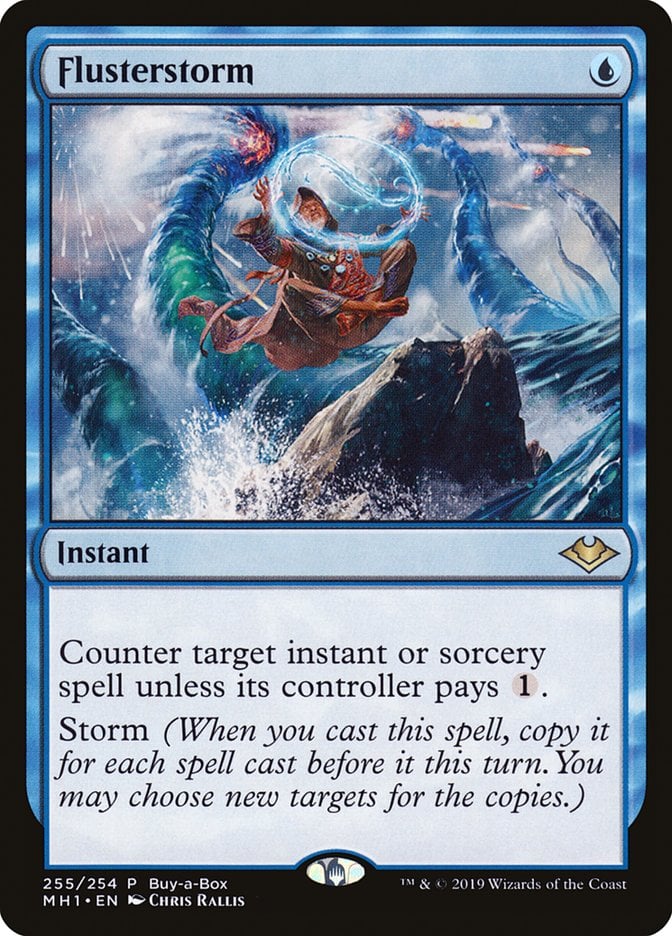
Flusterstorm doesn’t hit every spell, but it’s incredible at one thing: Winning counter wars. Hitting your opponent with three or four Force Spike copies at once often leads to them being unable to pay. Since you get so many unique copies, they can’t fire off a Dispel or something in return. It can also be useful in Commander to clear a full stack since you can choose different targets for each copy, potentially letting you stop multiple players. And you can technically use it to shut down a Tendrils of Agony or something.
#5. Counterspell
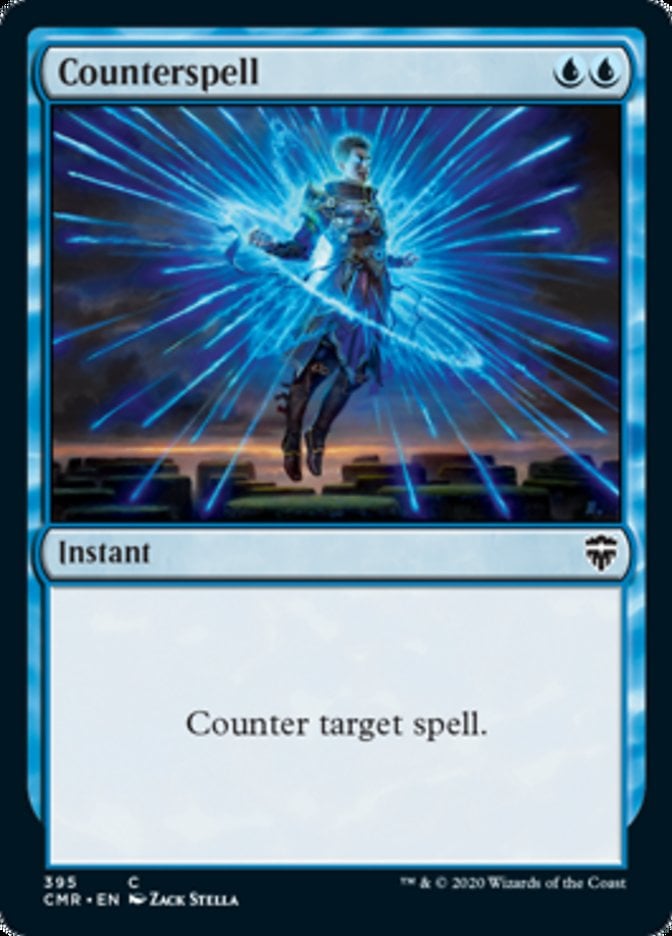
Counterspell has one of the most elegant designs of any Magicn card. It epitomizes blue’s identity and provides real value at a mana value cheap enough to be relevant for many formats while being color intensive enough not to go in every blue deck ever. It’s also just an amazing rate. Two mana to stop any spell is the perfect cost for a hard counter.
#4. Pact of Negation
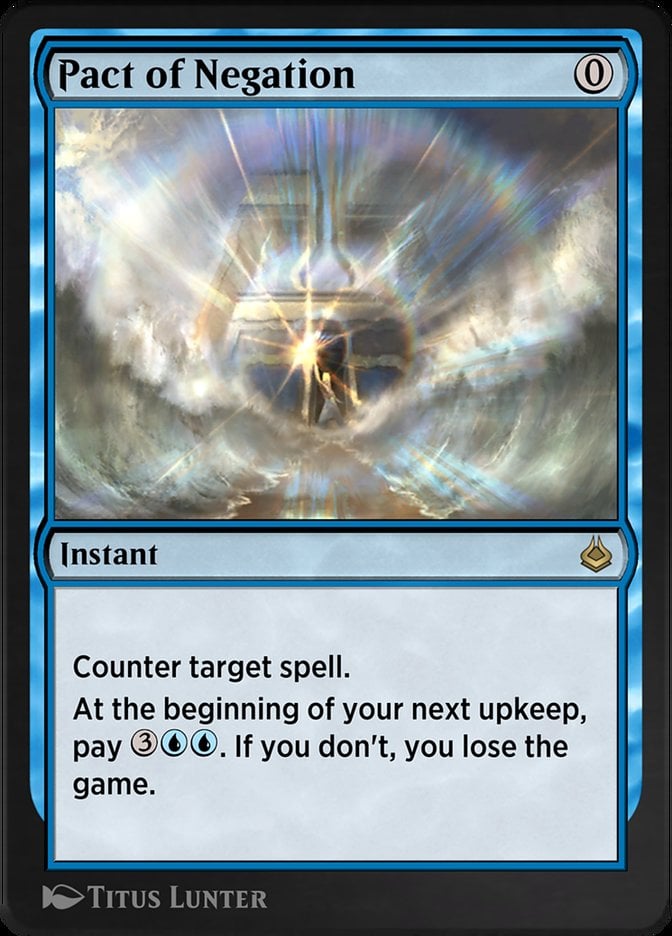
Pact of Negation is often a last-ditch effort to stop somebody from winning the game, but it’s very effective – as long as you can pay next turn. Getting to wait a turn to pay for your countermagic leaves you with some interesting plays, letting you tap out to establish a threat without worrying much about what your opponents can do. And needing to pay mana next turn doesn’t matter if you can win the turn you cast it, making it an excellent proactive counterspell.
#3. Mental Misstep
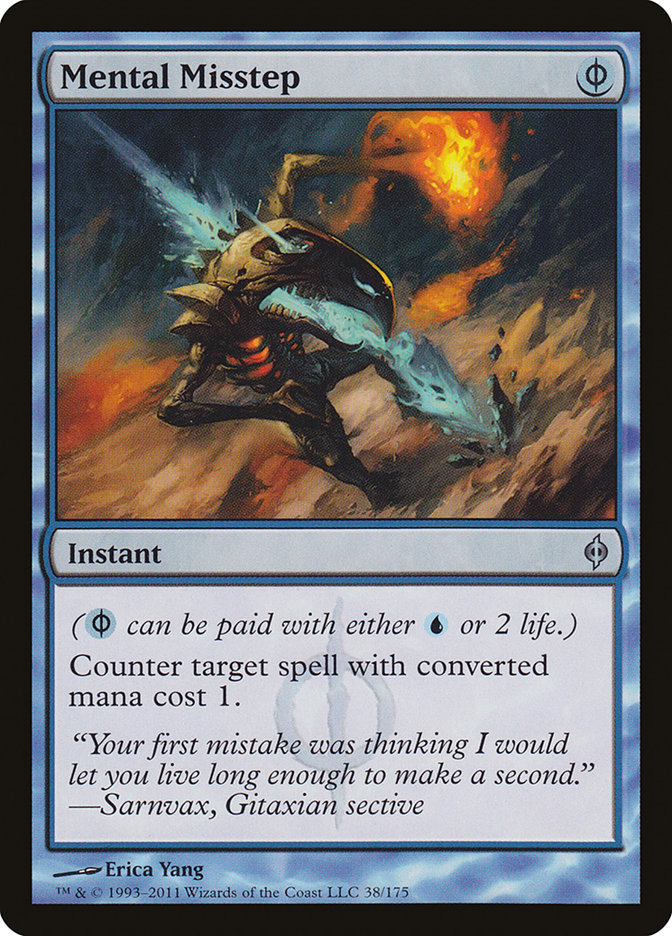
Magic is littered with problematic 1-mana spells. Ragavan, Nimble Pilferer, Sol Ring, Mana Vault, Delver of Secrets, all flavors of Llanowar Elves… the list goes on. Mental Misstep is such an effective tool it’s banned in basically every format it’s not restricted to a single copy. Paying 2 life has never been a significant cost in the history of Phyrexian mana, so this is a premium situational counterspell.
#2. Force of Will
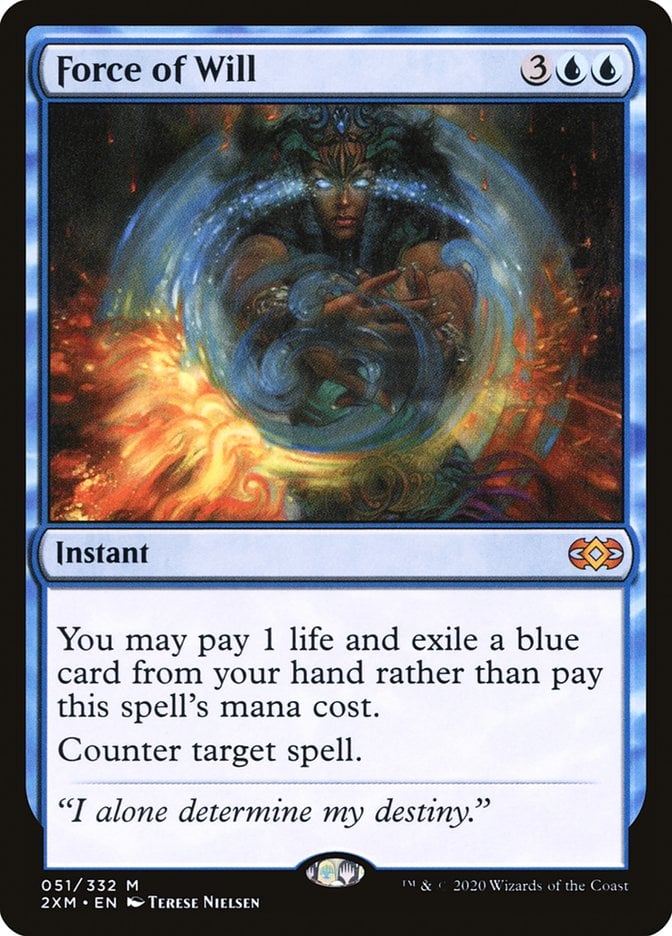
Force of Will is the gold standard for free countermagic. Yes, it’s inherently card disadvantage as you’re using two cards from your hand to stop their one card, but formats where FoW is legal have game-ending threats to warrant such extreme measures. There’s a reason practically every fair blue deck in Legacy runs FoW – or perhaps FoW is why all the fair decks in Legacy run blue. You could make an argument for Force of Negation being closer to this card since it’s easier to cast, but this answer anything at any time as long as your deck is mostly the best color in the game.
#1. Mana Drain
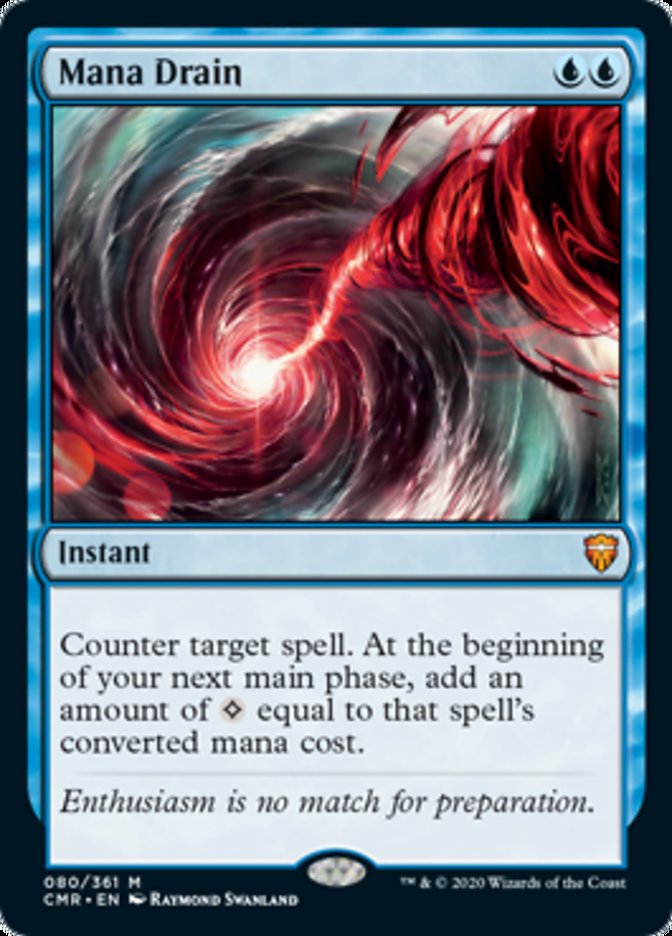
Mana Drain is the best counterspell ever. It’s a strictly better Counterspell, but it’s not slightly better. This card is stronger by orders of magnitude. One of the easiest ways to win a game of Magic is with huge bursts of mana. Mana Drain can stop your opponent from doing something powerful, then give you 4 or 5 extra mana to play with, practically sending you turns ahead in the game. At its absolute worst – countering a spell that costs 0 or giving you mana when you have nothing to spend it on – it’s still just Counterspell.
Best Blue Counterspell Payoffs
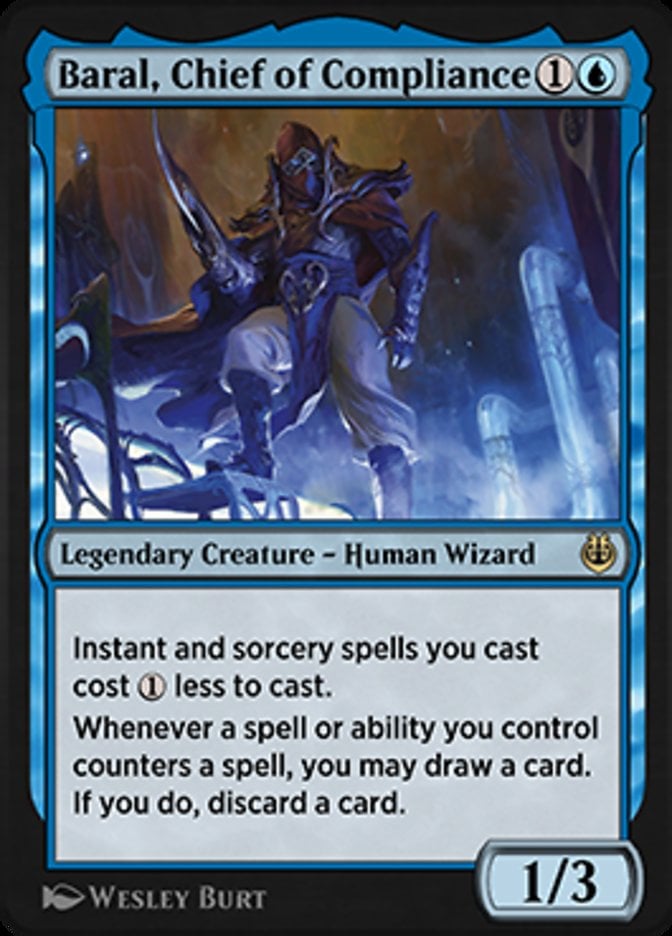
Blue has a few great payoffs for counterspells. One of the most prominent and direct is Baral, Chief of Compliance. Making your instants and sorceries cost 1 less makes this a powerful ramp piece for blue decks, but the looting lets you rip through your deck, ensuring you’ve always got more answers as you stop your opponent from playing the game.
Cards that trigger off-casting instants or sorceries are generally some of your best payoffs. Counterspells are great at trading one-for-one, but they don’t exactly win the game. Cards like Talrand, Sky Summoner or Niv-Mizzet, Parun change that. When casting your countermagic is already good, getting an additional effect pushes you to a winning condition. Cards like Archmage Emeritus and Wavebreak Hippocamp don’t outright win, but turning your efficient one-for-one into an efficient two-for-one breaks things in your favor.
Countermagic plays particularly well with instant speed card draw and creatures with flash. Playing classic draw-go Magic is a fantastic way to utilize your mana. Your opponents never know if your Islands represent Counterspell, Fact or Fiction, or Hullbreaker Horror. Keeping them guessing can make them play scared. Plus, ensuring that your win conditions don’t require you to tap out until your opponent’s end step gives them the narrowest possible window to cast spells without interaction.
Why Is Spell Snare Good?

While Spell Snare is an incredibly situational counterspell, it has a ton of power in formats where the meta makes it an effective tool. You’ll always have mana-positive trades because your opponent spends 2 mana on their spell while you only spend 1 to counter it. This makes it an incredibly effective tool on the draw, helping make up for the tempo disadvantage that comes from going second since your first turn negates their second.
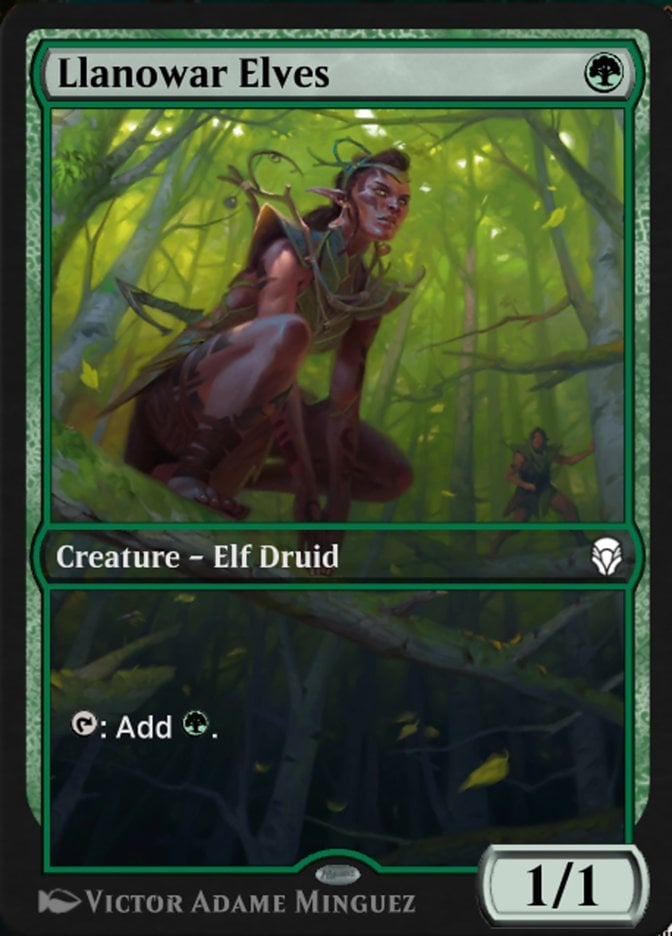
It’s still good on the play; in a deck full of cheap spells, you can play your Ragavan or Llanowar Elves or whatever 1-drop while leaving up enough mana to counter their second play. It highlights all the positive elements of good countermagic; it’s cheap, tempo-positive, and highly disruptive toward your opponents.
Is Force of Will Better Than Counterspell?
Well, yes, but actually, no.
The biggest downside to Force of Will is that it’s inherently a two-for-one. You’re using two cards from your hand to stop one of your opponent’s, while Counterspell always trades one-for-one, usually at a mana advantage, but the mana disadvantage is often minuscule.
That said, Force of Will lets you cast it for nothing, which is insanely powerful. The more powerful the rest of the format is, the better FoW becomes. For example, it sees tons of play in Legacy – practically every blue deck runs a playset. This is because of how high Legacy’s power level is. There are tons of cards, like Chalice of the Void, Reanimate, Show and Tell, or Doomsday, that effectively win the game if they resolve. With fast mana like Lotus Petal, Dark Ritual, and Lion's Eye Diamond in the format, you can’t risk not having mana up to defend against these powerful decks. FoW also gives some combo decks ways to protect their combo, even as they tap out to try and win the game.
In fairer matchups and lower-powered metas, FoW becomes far less appealing. Two-for-one'ing yourself to counter threats that don’t end the game on the spot often becomes more disadvantageous. Imagine using Force of Will to counter Jund’s Dark Confidant. That kind of trade often benefits the Jund player. If you’re in a matchup where you aren’t interested in playing FoW for free, then you’re playing an unreasonably expensive Counterspell. In these metas, Counterspell would be a much better choice.
Wrap Up
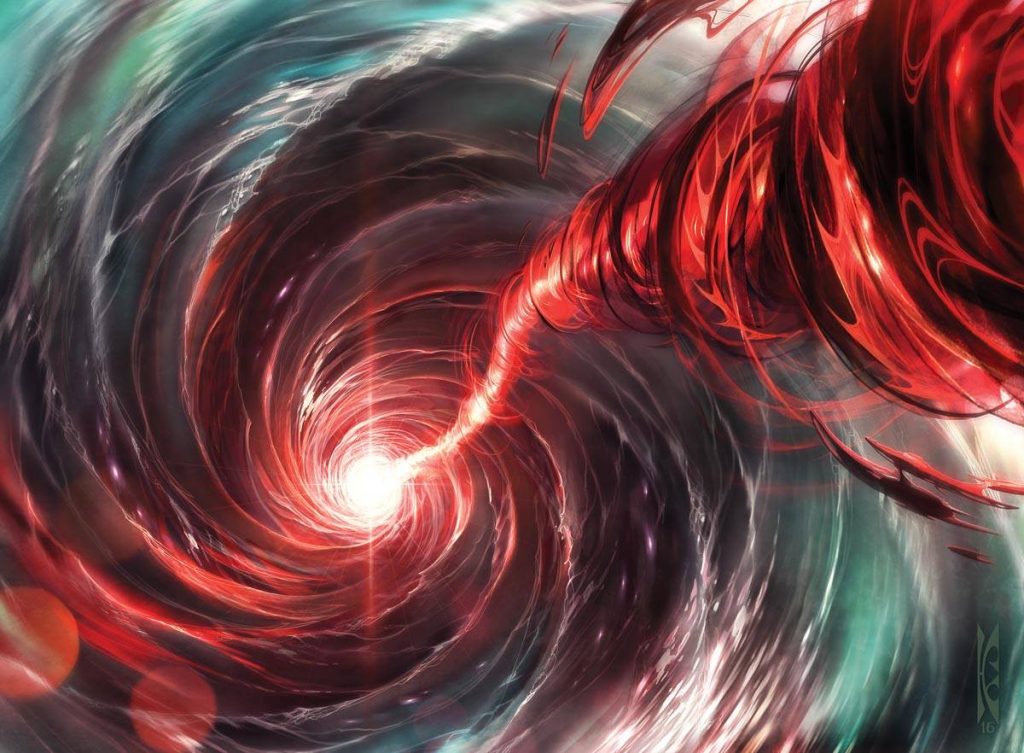
Mana Drain | Illustration by Raymond Swanland
The power of counterspells plays a significant role in blue’s designation as Magic’s strongest color. They stop your opponent’s best spells from impacting the game, providing you with powerful, disruptive tools that often trade up in mana. While the efficient ones tend to be the strongest, there are also quite a few expensive counterspells that pack a punch.
The expensive ones are especially playable in Commander, as the more casual format encourages big spells, and the 4-player structure slows games down. What are your favorite counterspells? Do you go for efficient or explosive in your Commander decks? Let me know in the comments or on the Draftsim Discord!
Stay safe, and control the game!
Follow Draftsim for awesome articles and set updates: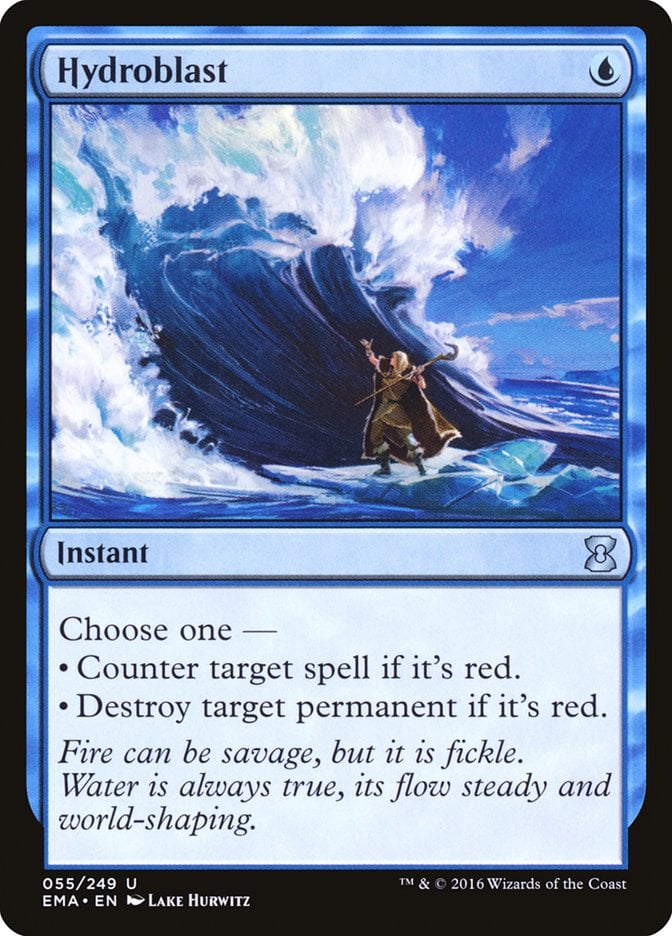
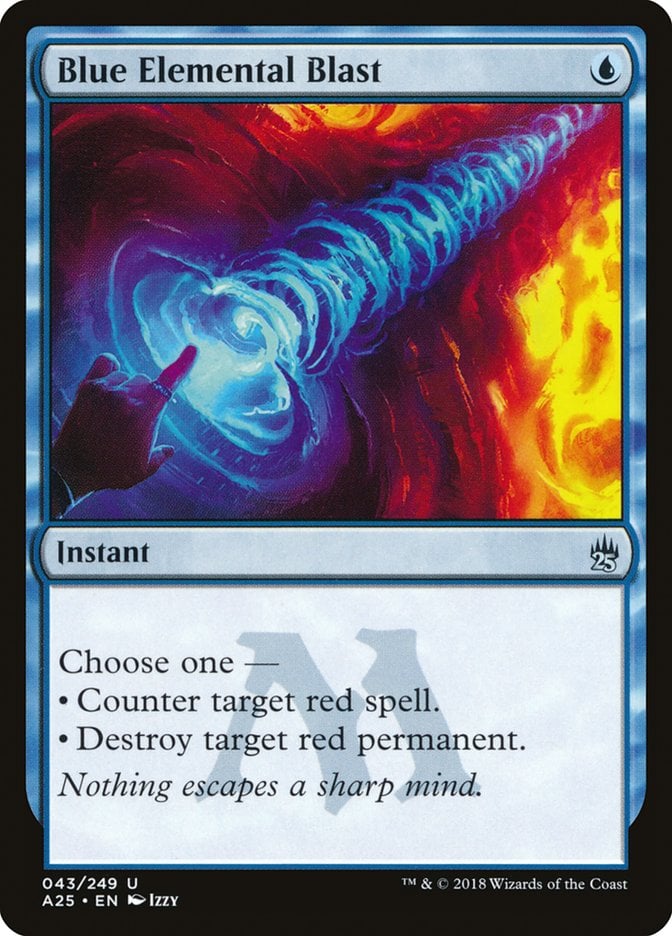
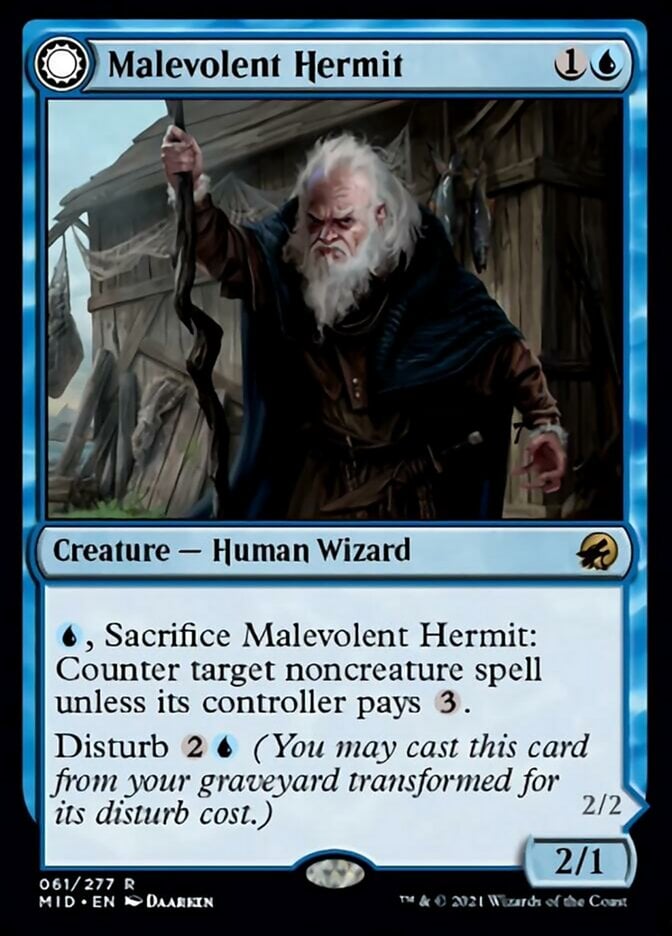

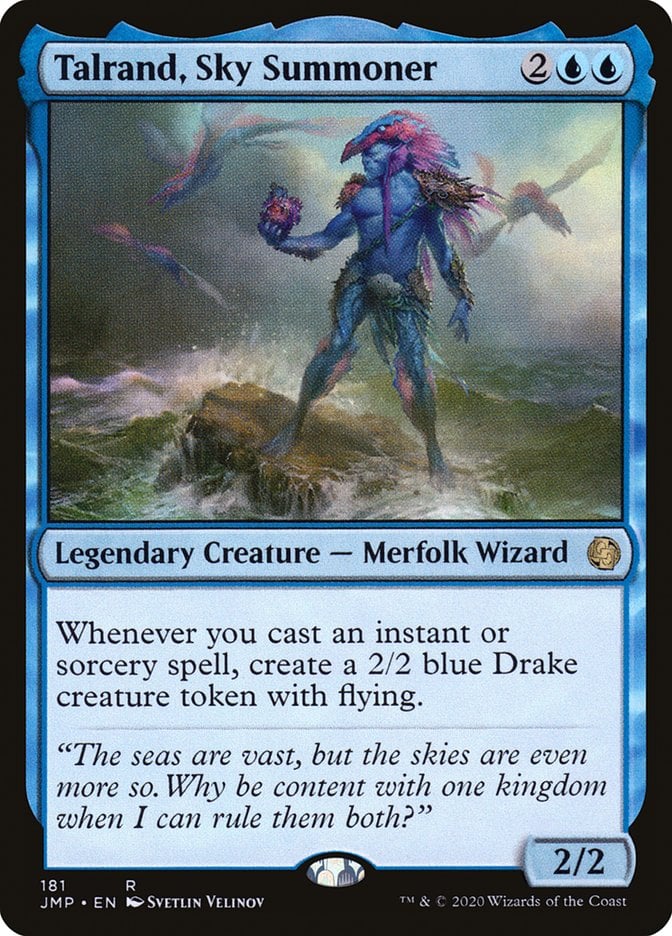
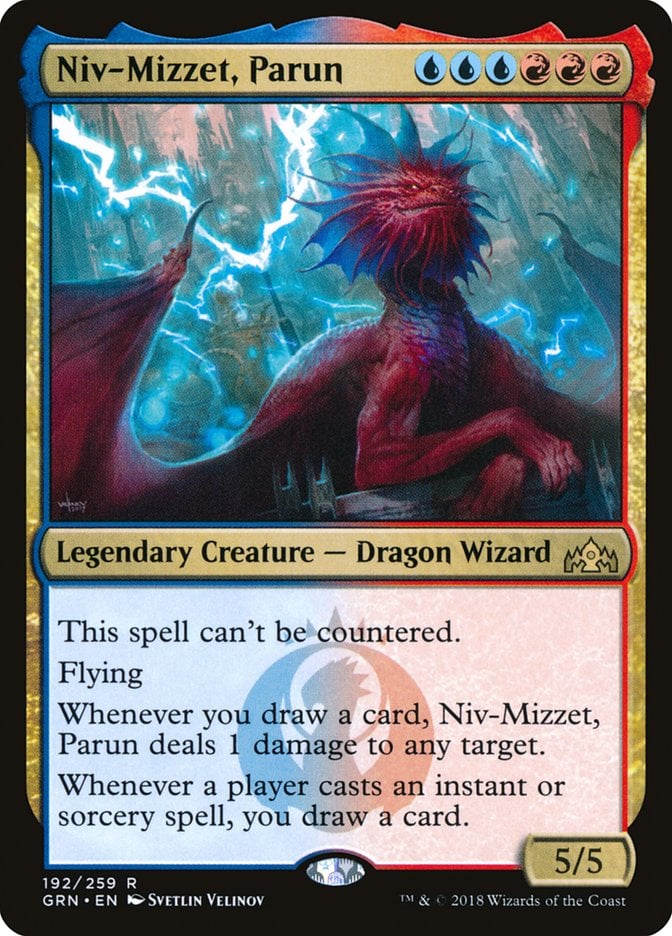
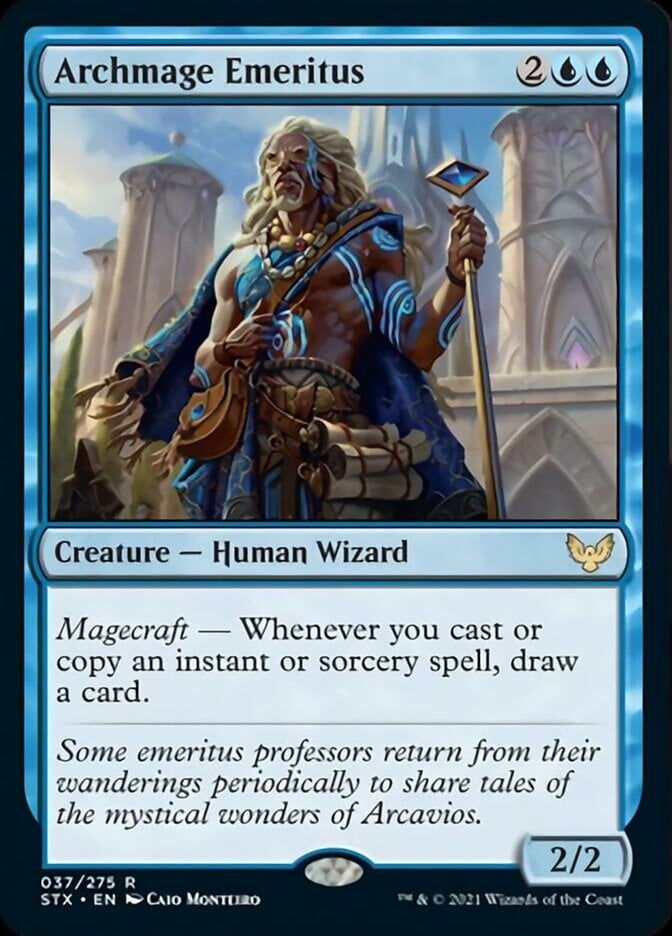
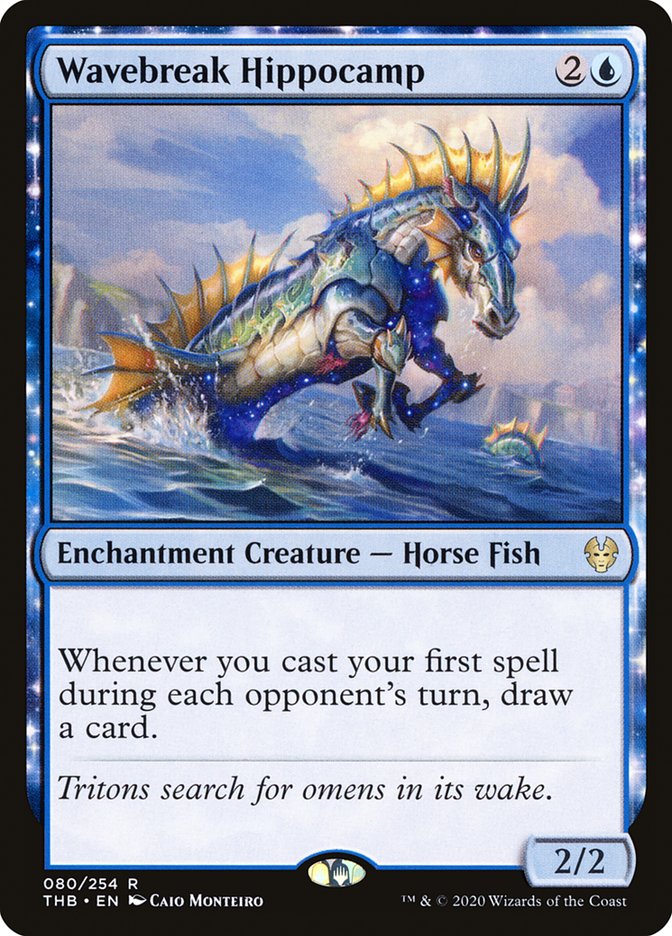
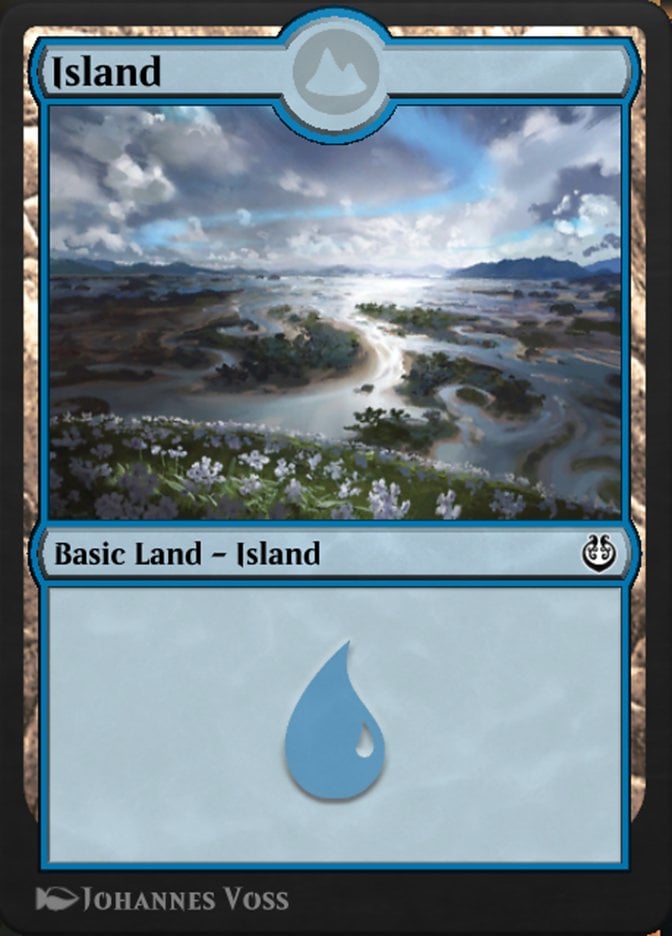
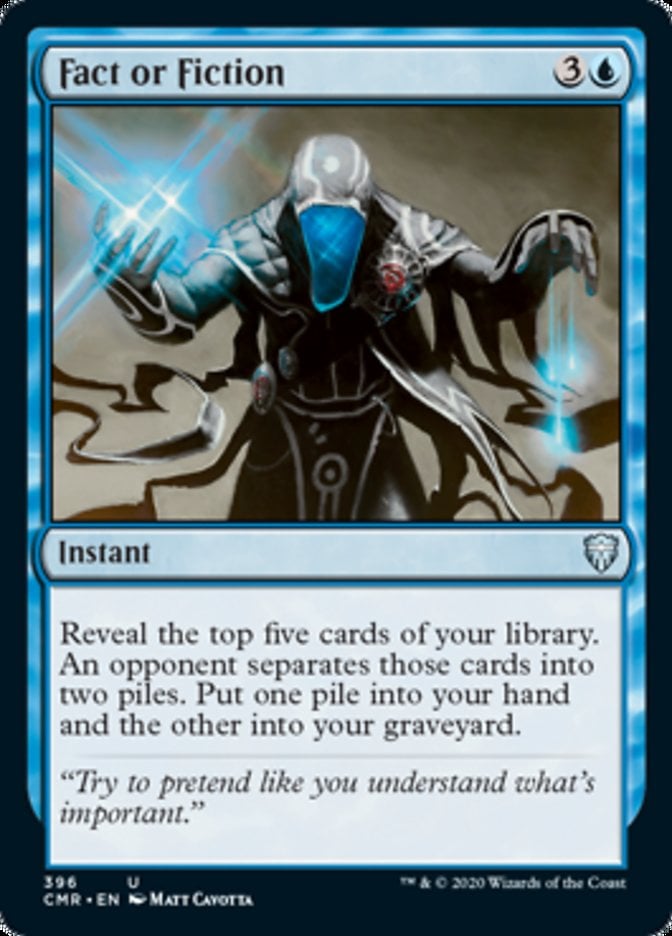
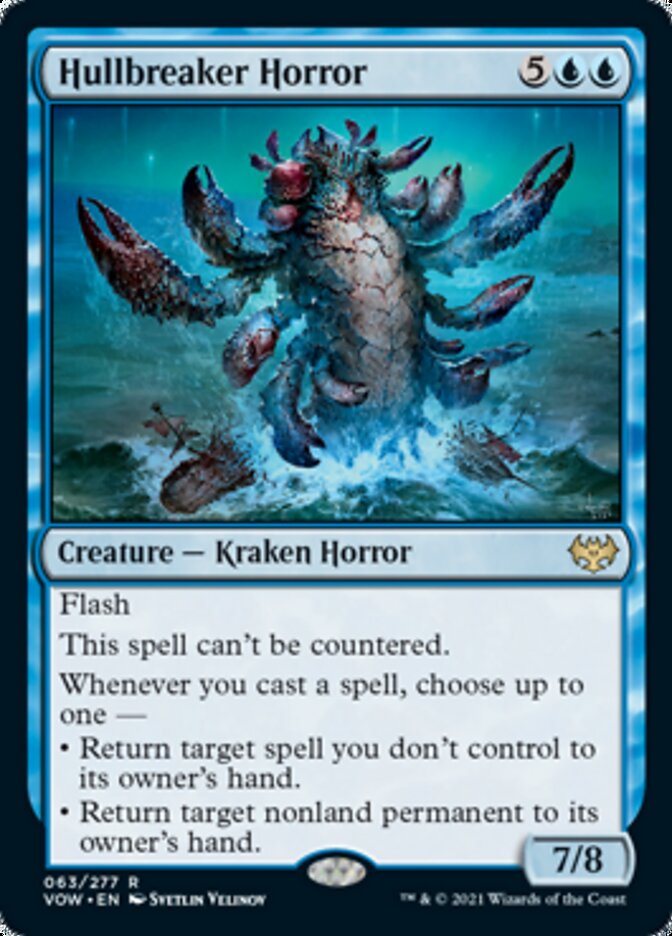

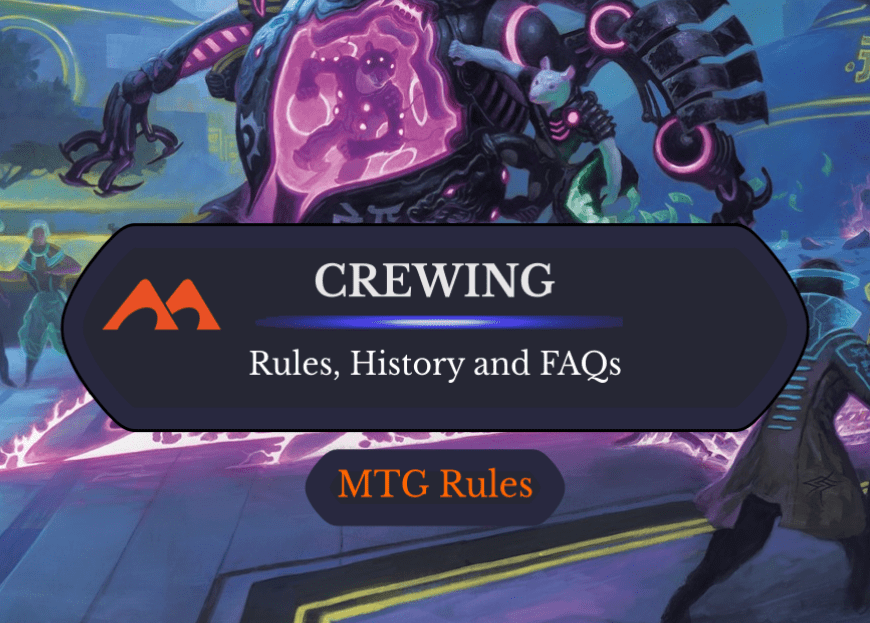
Add Comment